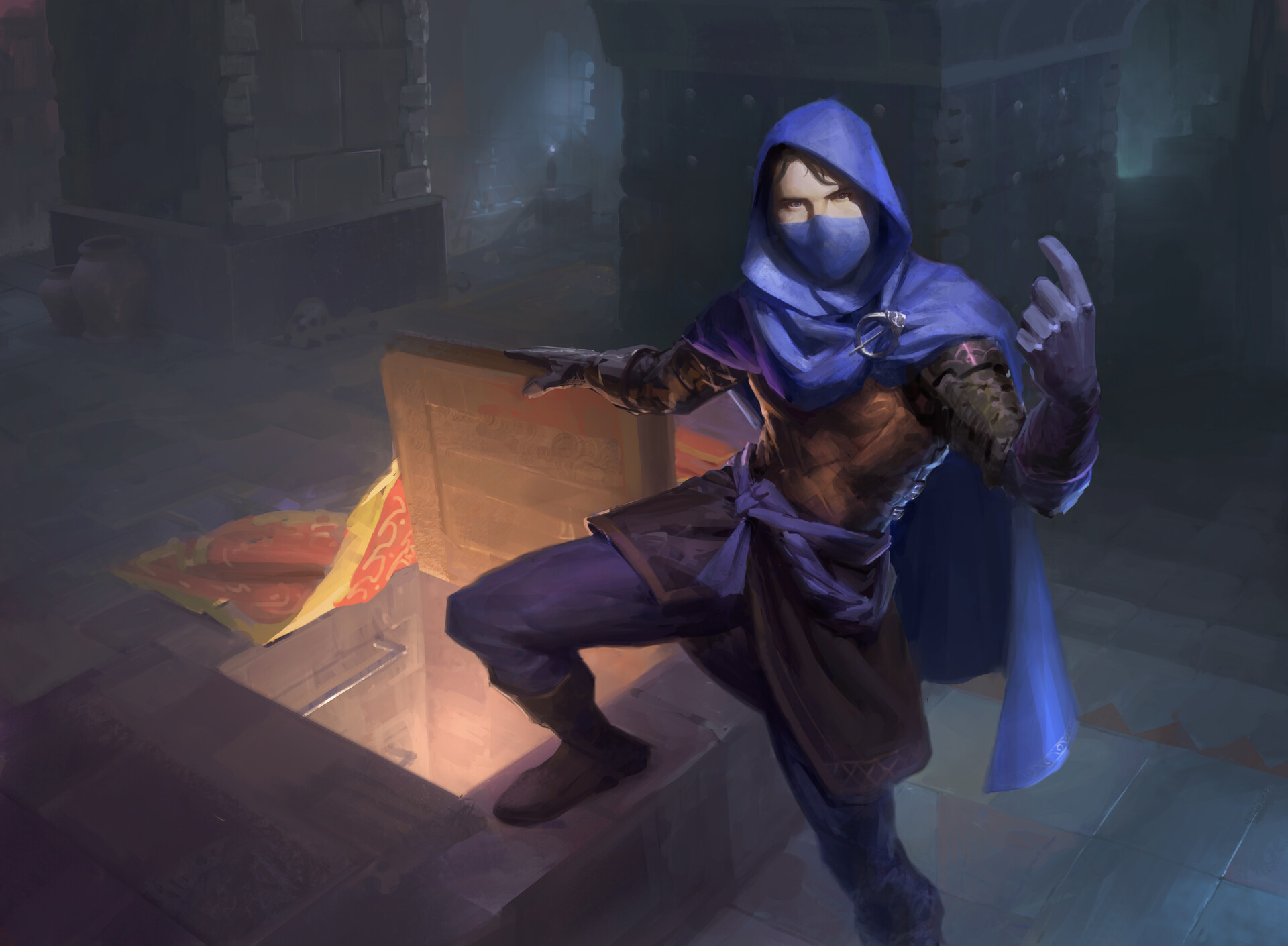


The Rogue
The small urchin placed a stone in
the pouch of his slingshot as he fled
the inn he'd been casing. Despite the
dirt that covered his ratty clothes he
managed to infiltrate the inn and make
his way to the hidden basement. What
he discovered shocked him, and he fled
the scene to alert his guild. As the inn-
-keeper chased him down an alley, his
previously hidden snakelike eyes and fangs
glinted in the moonlight. The urchin let loose
his slingshot and felled the serpentine man.
A dwarven professor surveyed the room
around her as the dust cleared. After years,
she had finally unearthed the lost tomb of
Emperor Durin IV. Despite her age, she had overcome
a number of deadly traps to reach the burial chamber of
the long-dead dwarven Emperor. After a short pause, the treasure hunter began to assess the value of the tomb.
After a lifetime of searching, a disheveled half-elf finally stood in front of the Count who had murdered his father. For the past thirty years, the half-elf had done nothing but study swordplay, all for this moment. He drew his rapier, whispered the name of his long-dead father, and lunged forward to cross swords with the villainous Count who had ruined his life.
The three characters described above are examples of the exceptional experts known as Rogues. Using nothing but their mastery of skill and subterfuge, they are able to achieve any goals, overcome any challenges, and outwit any enemies.
Wondrous Skill
Despite their infamous reputation, the true mark of a Rogue is their finely honed skills. Whether they be a master burglar, an exceptional swordsman, or a deadly assassin, a Rogue is relentless in pursuit of perfection in their chosen field. What they lack in brute force or arcane talent they can make up for with their near-supernatural skills and signature ingenuity.
When nobles, archmages, or guilds need a job completed without fail they turn to a Rogue with a suitable set of skills. The right Rogue can open any lock, eliminate any target, and infiltrate any tomb, no matter how many traps are in the way.
Deadly Precision
Where other warriors overwhelm their foes with brutal force or flurries of strikes, Rogues leverage their cunning and exact aim to land single devastating blows on their foes. They will wait for the right moment, a foe distracted by a powerful ally or a monster caught in the throes of a spell, and when that opportunity arises, a Rogue can make a single strike count.
Some Rogues prefer to lurk in the shadows, stabbing their foes in the back while they are unaware, and others work to draw their adversary into single combat, deftly avoiding its attacks until a deadly opportunity presents itself to them.
This mindset of precision carries over into all facets of a Rogue's life. When using their thieves' tools to disarm a trap
in an ancient dungeon, they will make only the most precise movements. When stalking a mark, a Rogue will often follow them for days, learning their every routine before they make
their move, taking their target for all they are worth.
Creating
Your Rogue
When creating your Rogue, there are a few things to consider. What skills have they chosen to master? Are they a criminal who can infiltrate even the most secure vault? Or, are they a master manipulator with a silver tongue? Or, has your Rogue combined minor magics with their talents for subterfuge?
You should also consider where your Rogue gained their exceptional skills. Were they an urchin living on the streets, forced to steal food in order to survive? Were they taken in by a thieves' guild and taught everything the guild knew? Or, are they the scion of a noble house, raised from birth as a master of political intrigue, artful swordplay, and public speaking?
Multiclassing and the Rogue
If your group uses the optional multiclassing rule, here is what you need to know when you choose to take your first level in the Rogue class.
Ability Score Minimum. As a multiclass character, you must have a minimum Dexterity score of 13 to take your first level as a Rogue, or to take a level in another class if you are already a Rogue.
Proficiencies. If Rogue isn't your initial class, here are the proficiencies you gain when you take your first level as a Rogue: light armor, one skill from the Rogue class skill list, and one set of tools.
Exploits. If you learn Exploits from more than one source, use the rules Linked Here to determine your total number of Exploit Dice and Exploits Known.
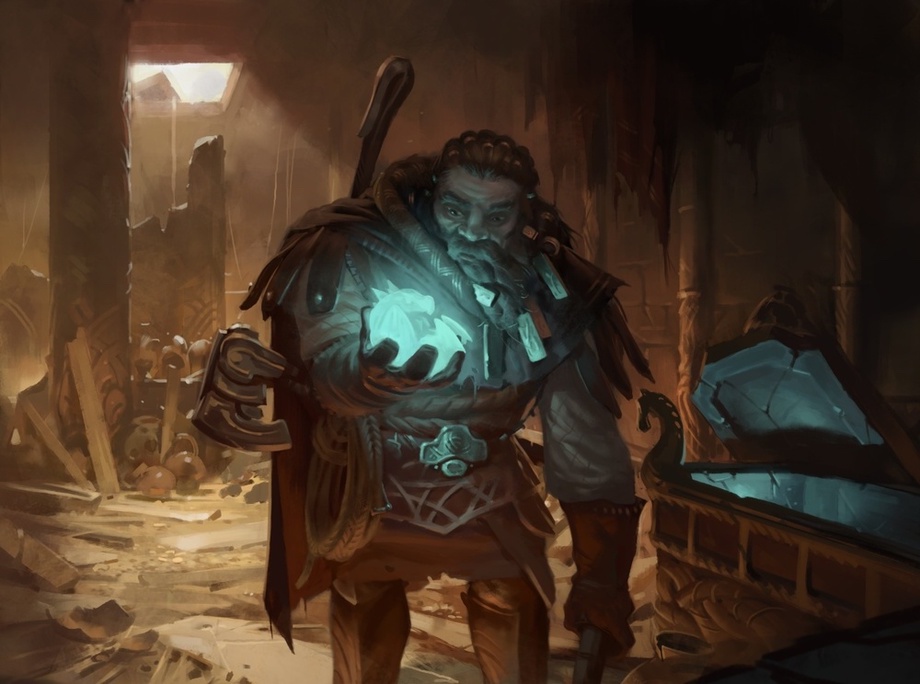

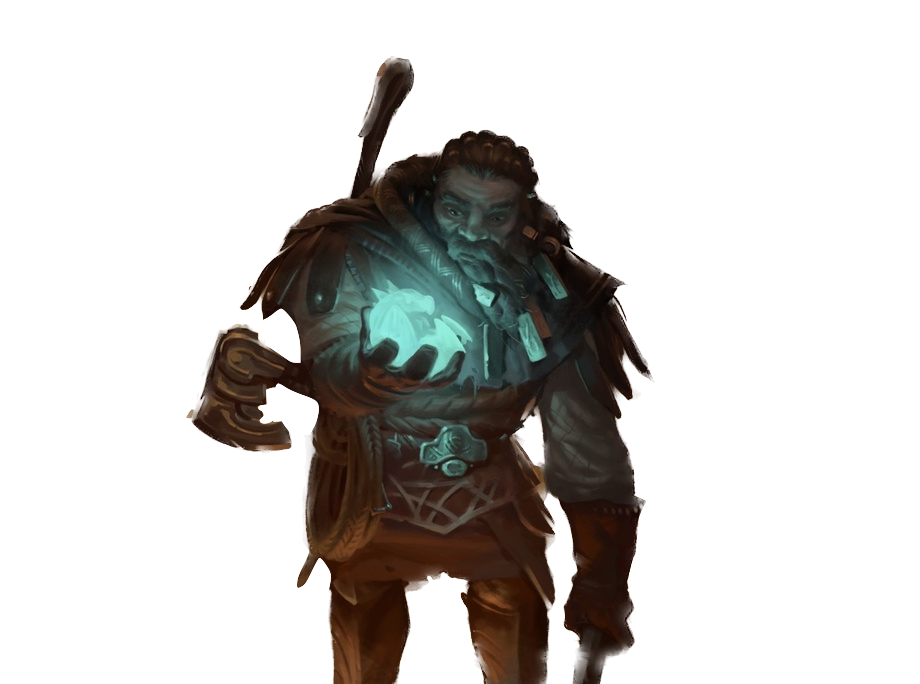



The Rogue
| Level | PB | Features | Sneak Attack |
Exploits Known |
Exploit Die |
Exploit Dice |
|---|---|---|---|---|---|---|
| 1st | +2 | Expertise, Sneak Attack, Thieves' Cant | 1d6 | ─ | ─ | ─ |
| 2nd | +2 | Cunning Action, Devious Exploits | 1d6 | 2 | d4 | 2 |
| 3rd | +2 | Roguish Archetype | 2d6 | 2 | d4 | 2 |
| 4th | +2 | Ability Score Improvement | 2d6 | 2 | d4 | 2 |
| 5th | +3 | Cunning Strike | 3d6 | 3 | d6 | 3 |
| 6th | +3 | Expertise, Uncanny Dodge | 3d6 | 3 | d6 | 3 |
| 7th | +3 | Archetype Feature | 4d6 | 4 | d6 | 3 |
| 8th | +3 | Ability Score Improvement | 4d6 | 4 | d6 | 3 |
| 9th | +4 | Evasion | 5d6 | 5 | d6 | 3 |
| 10th | +4 | Expertise, Reliable Talent | 5d6 | 5 | d6 | 3 |
| 11th | +4 | Cunning Action (2), Ruthless | 6d6 | 6 | d8 | 4 |
| 12th | +4 | Ability Score Improvement | 6d6 | 6 | d8 | 4 |
| 13th | +5 | Archetype Feature | 7d6 | 7 | d8 | 4 |
| 14th | +5 | Blindsense (10 feet) | 7d6 | 7 | d8 | 4 |
| 15th | +5 | Expertise, Slippery Mind | 8d6 | 7 | d8 | 4 |
| 16th | +5 | Ability Score Improvement | 8d6 | 7 | d8 | 4 |
| 17th | +6 | Archetype Feature, Blindsense (20 feet) | 9d6 | 8 | d10 | 5 |
| 18th | +6 | Elusive, Expertise | 9d6 | 8 | d10 | 5 |
| 19th | +6 | Ability Score Improvement | 10d6 | 8 | d10 | 5 |
| 20th | +6 | Blindsense (30 feet), Stroke of Luck | 10d6 | 8 | d10 | 5 |
Class Features
Hit Points
- Hit Dice: 1d8 per Rogue level
- Hit Points at 1st Level: 8 + your Constitution modifier.
- Hit Points at Higher Levels: 1d8 (or 5) + your Constitution modifier per Rogue level after 1st
Proficiencies
- Armor: Light armor
- Weapons: Simple weapons, blowguns, hand crossbows, scimitars, shortswords, rapiers, and whips
- Tools: One set of tools of your choice
- Saving Throws: Dexterity, Intelligence
- Skills: Choose four from Acrobatics, Athletics, Deception, Insight, Intimidation, Investigation, Perception, Performance, Persuasion, Sleight of Hand, and Stealth
Equipment
As a Rogue, you start with the following equipment, along with the equipment granted to you by your Background:
- (a) a rapier, (b) a scimitar, or (c) a shortsword
- (a) a shortbow and quiver of 20 arrows or (b) a shortsword
- (a) a burglar's pack or (b) a dungeoneer's pack
- Leather armor, two daggers, and a tool set of your choice
Quick Build
You can make a Rogue quickly by using these suggestions. First, make Dexterity your highest ability score, followed by
Charisma. Second, choose the Charlatan background.
Expertise
You master a signature set of skills and abilities. At 1st level, choose any combination of two skill and tool proficiencies.
If you were not proficient, you gain proficiency. If you were already proficient, you add double your Proficiency Bonus to any ability checks you make with that skill or tool.
As you gain levels in this class, you are able to specialize with additional skills. Another skill or tool proficiency of your choice gains this benefit at 6th, 10th, 15th, and 18th level.
Sneak Attack
Also starting at 1st level, you ruthlessly exploit distractions or flaws when striking. Once per turn when you hit a target with a finesse or ranged weapon attack, you can deal a bonus 1d6 damage on hit if you had advantage on your attack roll.
You do not need advantage on this attack roll if your target has another conscious hostile creature within 5 feet of it, and you do not have disadvantage on your attack roll.
This bonus damage increases as you gain Rogue levels, as shown in the Sneak Attack column of the Rogue table.
Thieves' Cant
Finally at 1st level, you learn to speak, understand, and leave messages in Thieves' Cant, the secret jargon of the criminal underworld. You can use this secret code to hide messages in normal conversation or leave secret markings on objects.
Alternately, you can forgo Thieves' Cant and instead learn to speak, read, and write two languages of your choice.

Cunning Action
Your sharp reflexes allow you quickly maneuver. Beginning
at 2nd level, you can take either the Dash, Disengage, Hide, or Use an Object action as a bonus action on your turn.
At 11th level, you can take a second bonus action on each turn, but you cannot use the same bonus action twice.
Devious Exploits
Also at 2nd level, you learn to employ various tricks
to enhance your signature set of skills and talents:
Exploit Dice
The Rogue table shows the number of Exploit Dice
you have to perform Exploits you know. Most require
you to expend Exploit Dice in order to use them. You can
only use one Exploit per weapon attack, ability check, or saving throw, and you regain all of your expended Exploit Dice when you finish a short or long rest.
Your Exploit Dice begin as d4s, and increase in size
as you gain levels, as indicated in the Rogue table.
Whenever you add an Exploit Die to a roll, always
roll your Exploit Die and add the result to your roll.
Exploits Known
At 2nd level, you know two Exploits of your choice
from the list at the end of this class description. To
learn an Exploit, you must meet its prerequisites.
You learn more Devious Exploits at the levels shown
in the Exploit Known column of the Rogue class table.
Finally, when you gain a Rogue level, you can replace
one Exploit you know with another you could learn.
Saving Throws
When an Exploit requires a saving throw, its Save DC is
based on your Strength or Dexterity. Once you choose
which ability score to use, it cannot be changed:
Exploit save DC = 8 + your Proficiency Bonus
+ your Strength or Dexterity modifier (your choice)
Devious Skill
Your talent gives you an edge. When you make an ability check, you can expend an Exploit Die and add it to your roll. You can do so after you roll, but before you know the result.
Roguish Archetype
At 3rd level, choose the Roguish Archetype from the list here that best reflects the training, talent, and skill of your Rogue:
| Arcane Trickster | Investigator | Psiknife |
| Assassin | Mastermind | Scout |
| Burglar | Phantom | Swashbuckler |
Your Archetype grants you features at 3rd level, and again when you reach 7th, 13th, and 17th level. If an Archetype feature forces a saving throw it uses your Exploit save DC.
Archetype Exploits
Some Archetypes have a list of Archetype Exploits you learn at the Rogue levels in their description, even if you don't meet their prerequisites. These Exploits do not count agianst your
number of Exploits Known, and they cannot be replaced.
Ability
Score Improvement
When you reach 4th level, you can increase one of your ability scores by 2, or two of your ability scores by 1. You cannot use this feature to increase your ability scores above 20. You gain this feature again at 8th, 12th, 16th, and 19th level.
Cunning Strike
You exploit weaknesses to great effect. Beginning at 5th level, when you make an attack that qualifies for Sneak Attack, you can forgo some of that bonus damage to use one Exploit you know without expending Exploit Dice, using the rules here:
- This Exploit must be used as part of a weapon attack.
- Reduce your Sneak Attack bonus damage by a number
of d6s equal to the degree of this Exploit.
For example, you could use your Cunning Strike to use the crippling strike Exploit by reducing your Sneak Attack bonus damage by 2d6 since crippling strike is a 2nd-degree Exploit.
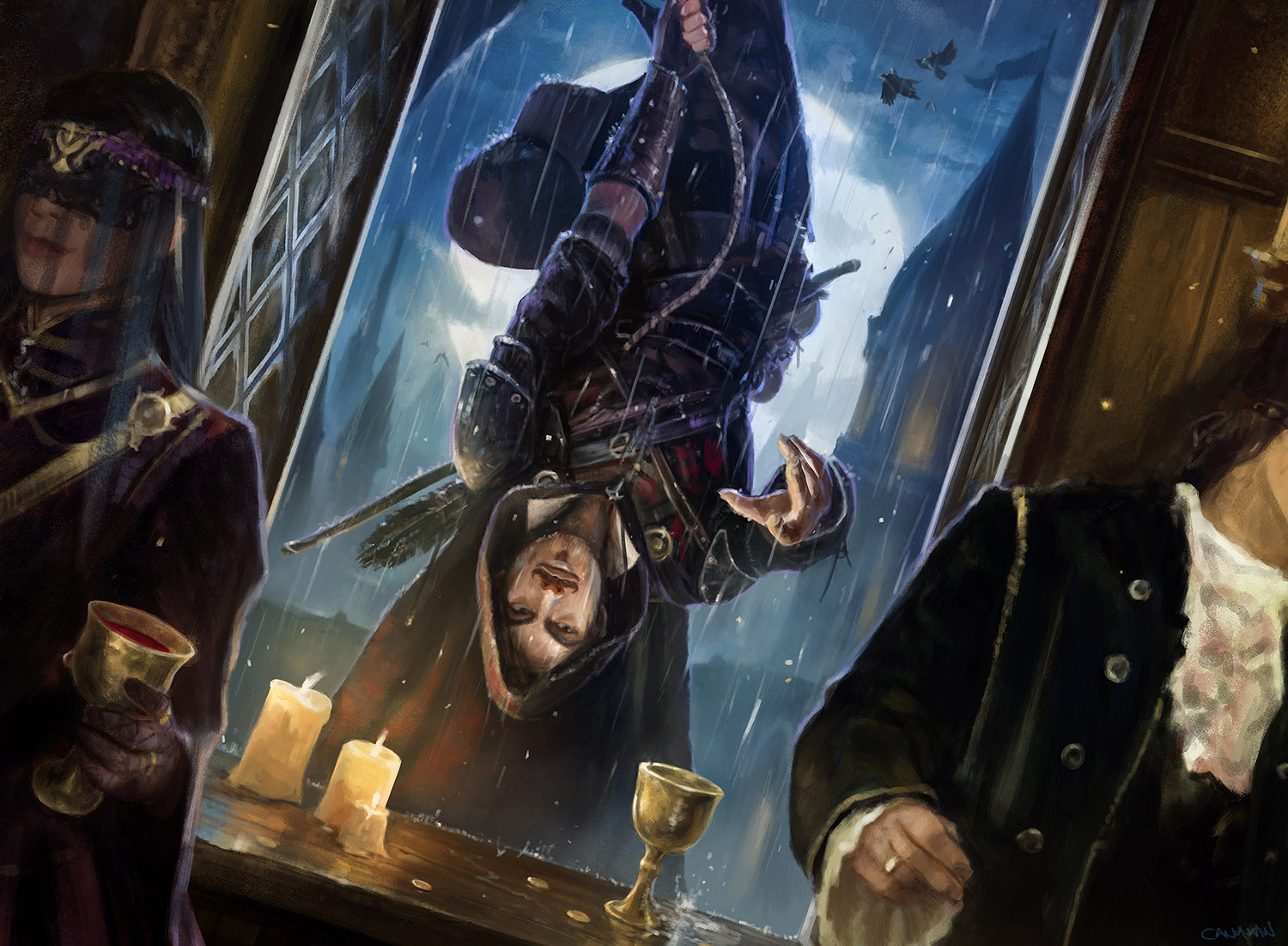





Uncanny Dodge
Beginning at 6th level, your reflexes you to dodge, deflect, and avoid damage. Whenever you are hit by an attack that you can see, you can use your reaction to halve the damage you take.
At 14th level, you can move up to half your speed without provoking opportunity attacks as part of this reaction.
Evasion
Starting at 9th level, your supernatural agility lets you dodge out of the way of certain area effects, like a dragon's breath or a lightning bolt spell. Whenever an effect allows you to make a Dexterity saving throw to take only half damage, you take no damage on a success, and only half damage on a failure.
Reliable Talent
Your signature skills that made you famous, or infamous, are beyond reproach. Beginning at 10th level, when you make an ability check that adds your Proficiency Bonus or an Exploit Die, you treat a roll of 9 or lower on the d20 as a 10.
Ruthless
Starting at 11th level, when you use a Devious Exploit as part of an attack that includes your Sneak Attack bonus damage, you can reduce the bonus damage by 2d6 to force your target to make its saving throw with disadvantage. You can use this feature and Cunning Strike as part of the same attack.
For example, if you were to use Cunning Strike to use the crippling strike Exploit, you could reduce your Sneak Attack bonus by an additional 2d6 (for a total reduction of 4d6), to force the target to make its Constitution saving
throw at disadvantage.
Blindsense
Your senses have been honed to supernatural levels. Starting at 14th level, if you can hear, you are aware of the location of any invisible or hidden creature within 10 feet of you.
The radius of Blindsense increases again when you reach 17th level (20 feet) and 20th level (30 feet) in this class.
Slippery Mind
Your endless pursuit of perfection in your chosen area of skill has honed your mind. Starting at 15th level, whenever you are forced to make an Intelligence, Wisdom, or Charisma saving throw, you gain a bonus to your roll equal to your Exploit Die.
Elusive
Your uncanny sense for danger makes it nearly impossible for your foes to gain the upper hand against you. Starting at 18th level, so long as you are not Incapacitated, no attack rolls that target you can be made with advantage.
Stroke of Luck
You have a supernatural knack for finding success when you need it most. Upon reaching 20th level, when you roll a d20 for an ability check, attack roll, or saving throw, you can treat the result as a 20 on the d20. You can do so after you know the result of your roll and whether you succeed or fail.
Once you use this feature you must finish a short or long rest before you can use it again.
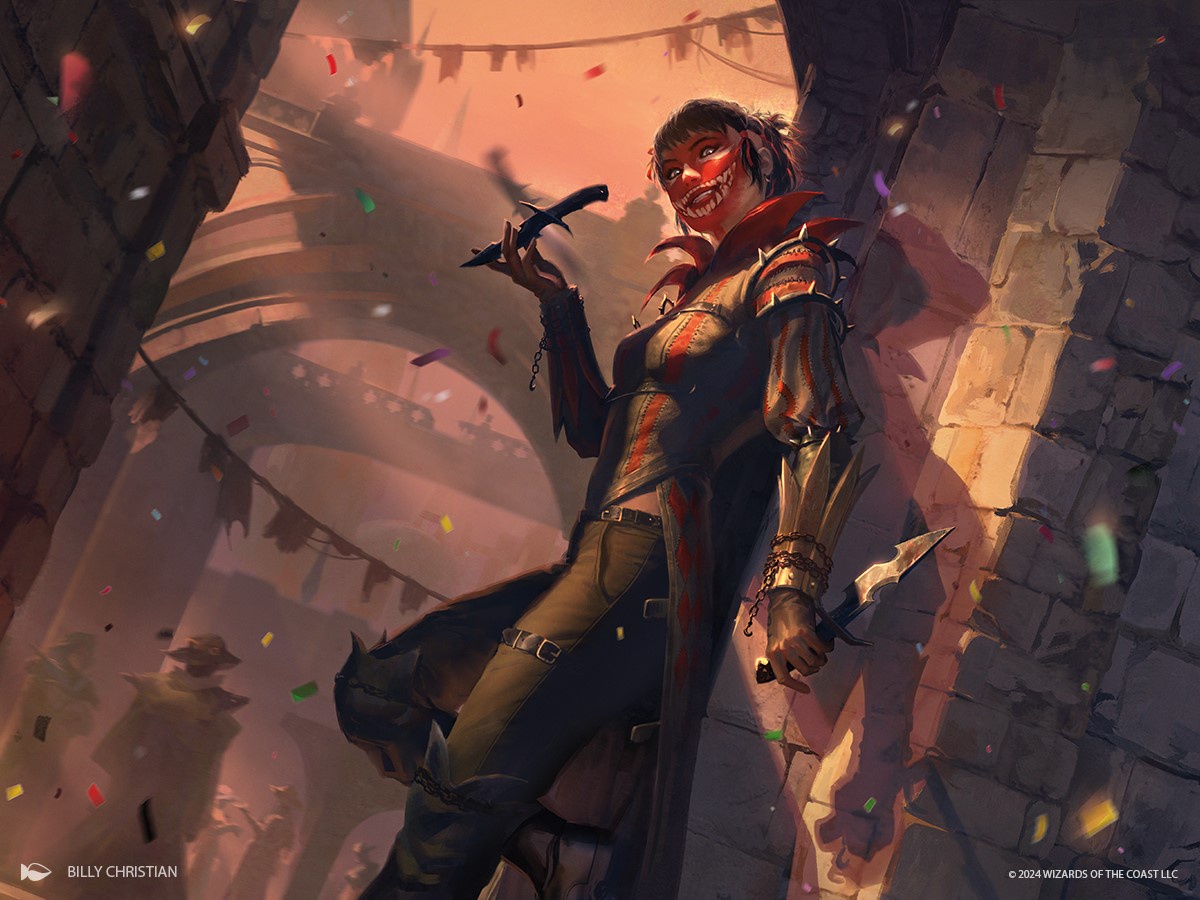



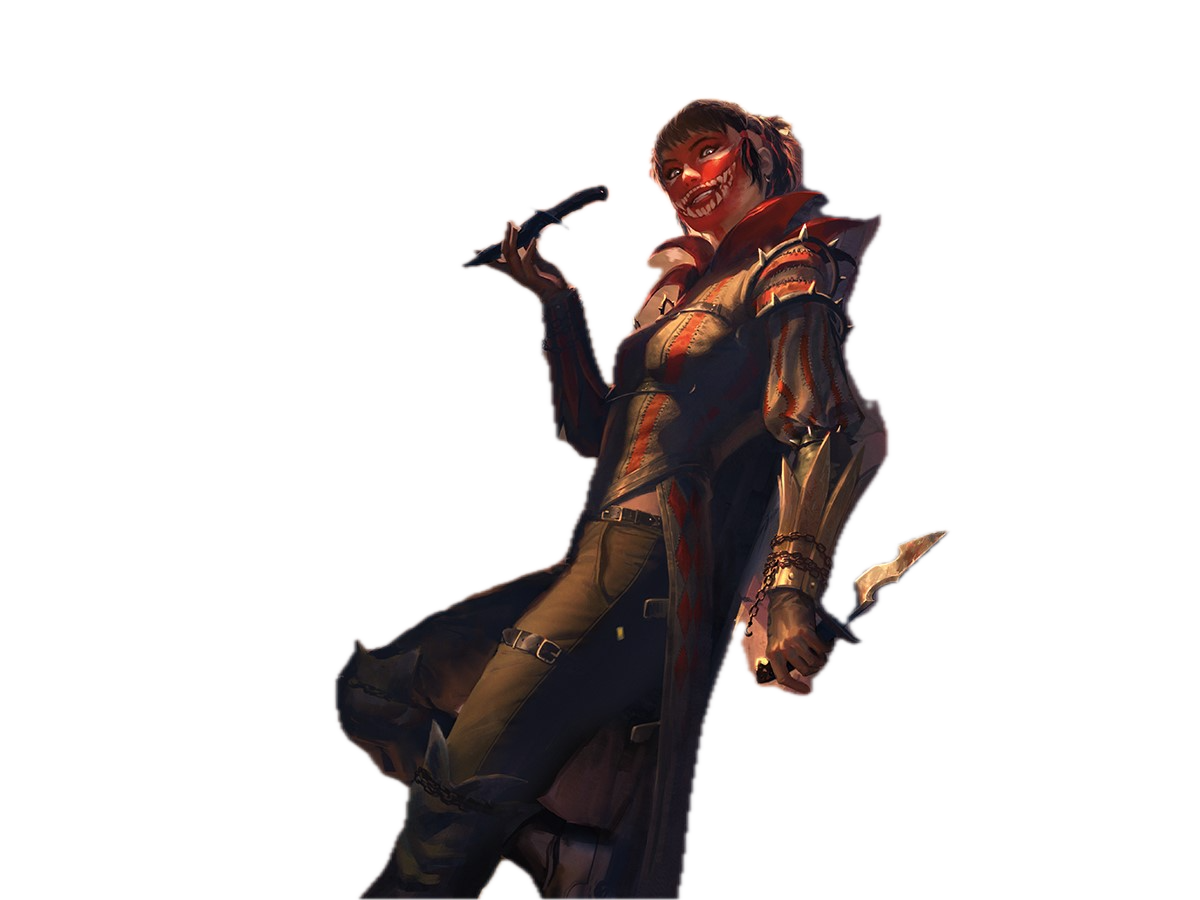
Devious Exploits
Below are the Exploits available to Rogues. If an Exploit has a prerequisite, like a minimum Ability Score or Rogue level, you can learn it at the same time you meet the prerequisites:
1st-Degree Exploits
Exploits of the 1st-degree are minor techniques slightly more complicated than swinging a weapon. They can be learned by Rogues with modest training and have no level prerequisite.
Aerial Maneuver
Prerequisites: Dexterity of 11, Acrobatics proficiency
As a reaction when you fall, you can expend an Exploit Die to reduce the falling damage by five times your level. If you are not reduced to 0 hit points, you land on your feet.
Arresting Strike
When you hit a target with a weapon attack, you can expend one Exploit Die and force it to make a Dexterity saving throw. On a failure, add your Exploit Die to the damage roll, and the target's speed is halved until the start of your next turn.
Disarm
When you hit a target with a weapon attack, you can expend an Exploit Die and force it to make a Strength saving throw. On a failure, add your Exploit Die to the damage roll, and it drops one object of your choice on the ground in its space.
Eloquent Speech
Prerequisites: Intelligence of 11
You can use Intelligence, in place of Charisma, whenever you make a Deception or Persuasion check. If you do so, you can expend an Exploit Die to treat a d20 roll of 7 or lower as an 8.
Feint
As a bonus action, you expend an Exploit Die to feint, forcing a creature that can see you within 15 feet to make a Wisdom saving throw. On a failure, you have advantage on all attacks against that creature until the end of your current turn.
First Aid
Prerequisites: Medicine proficiency
As an action, you touch a willing, living creature and expend Exploit Dice (up to your Proficiency Bonus). For every Exploit Die spent, that creature regains hit points equal to one roll of its Hit Die + its Constitution modifier (minimum of 0).
Imposing Presence
Prerequisites: Strength of 11
You can use Strength, in place of Charisma, when you make an Intimidation or Persuasion check. When you do, you can spend an Exploit Die to treat a d20 roll of 7 or lower as an 8.
Modify Device
Prerequisites: tinker's or thieves' tools proficiency
Over the course of 1 minute, you can expend one Exploit Die and use tinker's or thieves' tools to modify a trap or lock you touch, chaning its DC to equal your Exploit save DC.
To do so, the trap or lock must be deactivated or unlocked, and you must have access to its inner mechanisms. You can't use this Exploit to modify a trap or lock that cannot be reset,
or one that has been destroyed beyond repair.
Parry
Prerequisites: Dexterity of 11
While you are wielding a Finesse or Versatile weapon, and a creature you can see hits you with a melee attack, you use a reaction to expend one Exploit Die and add it to your Armor Class against the triggering attack.
Precision Strike
Prerequisites: Dexterity of 11
As part of a weapon attack you can expend one Exploit Die and add it to your attack roll. You can use this Exploit after you roll, but before you know if your attack is a hit or miss.
Reliable Skill
Whenever you make an ability check using a skill or tool that you are proficient in and roll a 7 or lower on the d20, you can expend one Exploit Die to treat the d20 roll as an 8.
Roguish Charm
Prerequisites: Charisma of 11, Persuasion proficiency
As an action, you can expend one Exploit Die and force one Humanoid who can hear and understand you within 10 feet to make a Wisdom saving throw. If it is Hostile toward you, it does so with advantage. On a failure, it is Charmed by you for 1 hour, treating you as a friendly acquaintance, though it will not risk its life for you.
This effect ends if you or your allies do anything harmful to the Charmed creature. If this Exploit's effects end in this way, the creature realizes that it was deceived by you.
Once a creature succeeds on its saving throw against this Exploit, it is immune to this effect for the next 24 hours.
Sweeping Strike
If you hit a creature with a melee weapon attack, you expend an Exploit Die and force it to make its choice of a Strength or Dexterity saving throw. On a failure, add your Exploit Die to the damage roll and the creature is knocked Prone.
2nd-Degree Exploits
Exploits of this degree represent the absolute peak of roguish skill that is achievable without dedicated training. 2nd-degree Exploits can be learned by any Rogue of 5th level or higher:
Blinding Debris
Prerequisites: 5th-level, Dexterity of 13
As a bonus action, you expend one Exploit Die to force one creature within 10 feet to make a Dexterity saving throw. On a failed save, the creature is Blinded until it uses its action to clear the debris from its eyes.
Craft Alchemical Oil
Prerequisites: 5th-level, alchemist's supplies proficiency
As an action, you expend an Exploit Die and use alchemist's supplies to craft a vial of Alchemical Oil, choosing acid, cold, fire, poison, or lightning. This Oil uses the rules below:
Consumable. The Alchemical Oil retains its potency until the end of your next long rest, at which point it is inert and unusable. You cannot regain the Exploit Die spent to create the Oil until this Alchemical Oil is spent or destroyed.
Applying Oil. A creature can take the Use an Object action to expend this vial and apply it to one weapon it is holding.
Alchemical Strike. For the next 10 minutes, that weapon deals the damage type of the Oil in place of its normal type.

Craft Simple Poison
Prerequisites: 5th-level, poisoner's kit proficiency
As an action, you expend an Exploit Die and use a Poisoner's it to craft one vial of Simple Poison. It uses the rules below:
Consumable. The Poison retains its potency until the end of your next long rest, at which point it is inert and unusable. You cannot regain the Exploit Die spent to create the Poison until this Simple Poison is spent or destroyed.
Applying Poison. Any creature can take the Use an Object action to expend this vial of Minor Poison and apply it to one weapon or piece of ammunition it is holding.
Poisoned Strike. The next time the Poisoned object deals damage to a creature, the damage type is changed to poison, and the target must succeed on a Constitution saving throw or become Poisoned for 1 minute.
The Poisoned creature can repeat this saving throw at the end of each of its turns, ending the effect on a success.
Crippling Strike
Prerequisites: 5th-level
When you hit a target with a weapon attack, you can expend an Exploit Die to attack one of its senses, forcing it to make a Constitution saving throw. On a failure, add your Exploit Die to the damage roll, and it is Blinded, Deafened, or can't speak (your choice) until the beginning of your next turn.
Dirty Hit
Prerequisites: 5th-level, Dexterity of 13
When you hit a creature with a melee weapon attack, you can expend an Exploit Die to strike at a vulnerable point to force it to make a Constitution saving throw. On a failure, add your Exploit Die to the damage roll, the creature falls Prone, and it cannot take reactions until the start of your next turn.
Exposing Strike
Prerequisites: 5th-level
When you hit a target with a weapon attack, you can expend an Exploit Die to weaken it. The first attack made against it before the start of your next turn has advantage, and on hit, that attack deals bonus damage equal to your Exploit Die.
Grasp of Night
Prerequisite: 5th-level, 13 Wisdom
In place of an attack, you can expend
Exploit Dice (up to Proficiency Bonus) to
touch a creature and attempt to knock it
out. For each Exploit Die spent, roll three
Exploit Dice, then add your Wisdom
modifier to the total. If the creature's
remaining hit points are equal to or
less than the total it falls asleep, and
is Unconscious for 10 minutes.
The creature wakes up if it
takes damage or another
creature uses an action
to shake or slap the
sleeping target awake.
Glancing Blow
Prerequisites: 5th-level
When you make a melee weapon attack and miss, you can expend an Exploit Die to immediately repeat your attack against another target within the reach of your weapon. On hit, add your Exploit Die to the damage roll of that attack.
Soothing Speech
Prerequisites: 5th-level, Persuasion proficiency
As an action, you expend one Exploit Die and speak to all creatures that can hear and understand you within 20 feet, forcing them to make a Charisma saving throw. On a failed save, creatures become Indifferent toward any creature that they can see for the next 10 minutes.
This effect ends if a creature takes damage, is forced to make a saving throw, or it witnesses an ally being harmed.
Survey Dungeon
Prerequisite: 5th-level, Dexterity or Intelligence of 13
You can expend an Exploit Die to spend 10 minutes carefully examining a room, gaining knowledge of one of the following:
- One natural or mechanical trap within the area.
- One active spell in the area that was cast at a level
equal to your Intelligence modifier or lower. - One secret compartment, door, or passageway.
Trick Shot
Prerequisites: 5th-level, Dexterity or Intelligence of 13
Any time you make a ranged or thrown attack with a Finesse weapon, you can expend an Exploit Die to make a Trick Shot.
This special attack can't have disadvantage, and it ignores cover, so long as it can ricochet off a single surface and hit a target. On hit, add your Exploit Die to the damage roll.







3rd-Degree Exploits
These Exploits are masterful acts of subterfuge and skill, and can only be learned by Rogues of 9th level or higher. Each of these Exploits can only be used once per short or long rest:
Craft Expert Poison
Prerequisites: 9th-level, poisoner's kit proficiency
As an action on your turn, you can expend Exploit Dice (up
to your Proficiency Bonus) and use a Poisoner's Kit to craft a single vial of Expert Poison. It uses the rules below:
Consumable. The Poison retains its potency until the end of your next long rest, at which point it is inert and unusable. You cannot regain the Exploit Dice spent to create the Poison until this Expert Poison is spent or destroyed.
Applying Poison. Any creature can take the Use an Object action to expend a vial of Expert Poison and apply it to one weapon or piece of ammunition it is holding.
Poisoned Strike. The next time the Poisoned object deals damage to a creature, it deals bonus poison damage equal to the Exploit Dice spent in its creation, and the creature must make a Constitution saving throw or it suffers the following effects for 1 minute:
- It has disadvantage on all attack rolls and ability checks.
- Its speed is halved, and it cannot take reactions.
The creature can repeat this Constitution saving throw at the end of each of its turns. On a success, the effect ends, but on a failure, it takes poison damage equal to your Exploit Die.
Forgotten Knowledge
Prerequisite: 9th-level, History proficiency
You can expend an Exploit Die to spend 10 minutes focused on a person, object, or location you can see, after which, you remember a piece of lore about the subject of your focus.
This lore might consist of modern tales, forgotten stories, or even secret lore that was never widely known. The more information you have about your focus, the more precise and
detailed the information you seem to remember about it.
Incite Violence
Prerequisites: 9th level, Intelligence or Charisma of 15
As an action, you can expend an Exploit Die and whisper violent words to a creature that can understand you within
5 feet, forcing it to make a Wisdom saving throw.
On a failure, it takes psychic damage equal to twice your Exploit Die and uses its reaction to make one melee attack against a target of your choice within its reach. If no target is within its reach, this creature has disadvantage on the first attack roll it makes before the start of your next turn.
Recruit Informant
Prerequisite: 9th-level, Charisma or Intelligence of 15
You can expend an Exploit Die and spend 1 hour to recruit a Humanoid Informant in settlement of significant size. There must be a willing Humanoid, such as an urchin, criminal, spy, thief, or another rapscallion, as determined by the DM.
Your Informant won't aid you in combat or risk their life, but will gather information, rumors, news, and secrets from their settlement. During each long rest, they will seek you out and deliver this information if you are in that settlement.
Your Informant remains in your service until you dismiss them or they die. However, you do not regain the Exploit Die spent on this Exploit until they leave your service.
Having more than one Informant in a settlement increases the accuracy and secrecy of information they can gather.
Survey Settlement
Prerequisite: 9th-level, Dexterity or Charisma of 15
You can expend an Exploit Die and spend 1 hour gathering information on 1 square mile of a settlement. You then gain knowledge about three of the following related to that area:
- Any active factions and faction outposts within the area.
- Prominent buildings, gathering places, and cultural sites.
- Powerful political, religious, or military leaders.
- Loyalties, beliefs, rumors, and fears of the local populace.
- Secret alleyways, doors, hideouts, or storefronts.



4th-Degree Exploits
Exploits of the 4th-degree are only able to be mastered by the most cunning minds. These can only be learned by Rogues of 13th level and higher, and each 4th-degree Exploit you know can only be used once per short or long rest.
Craft Advanced Poison
Prerequisites: 13th-level, poisoner's kit proficiency
As an action on your turn, you can expend Exploit Dice (up
to your Proficiency Bonus) and use a Poisoner's Kit to craft a single vial of Advanced Poison. It uses the rules below:
Consumable. The Poison retains its potency until the end of your next long rest, at which point it is inert and unusable. You cannot regain the Exploit Dice spent to create the Poison until this Advanced Poison is spent or destroyed.
Applying Poison. Any creature can take the Use an Object action to expend a vial of Advanced Poison and apply it to one weapon or piece of ammunition it is holding.
Poisoned Strike. The next time the Poisoned object deals damage to a creature, it deals additional acid damage equal to the Exploit Dice spent in its creation, and the target must make a Constitution saving throw. On a failure, the creature has disadvantage on ability checks and attack rolls for 1 hour. If it fails by 5 or more, it is also Blinded for the duration.
As an action, the creature can repeat its saving throw. On a success, the effect ends, but on a failure, it takes acid damage
equal to your Exploit Die.
Expert Focus
Prerequisites: 13th-level
As an action, you expend an Exploit Die to temporarily
focus on one of your skills. Choose a skill or tool you are
proficient in. For 1 hour, whenver you make an ability
check with that skill you gain a bonus to your roll equal
to your Exploit Die.
Fluid Movements
Prerequisites: 13th-level, Dexterity of 17
As a bonus action, you can expend one Exploit Die to enter
a heightened state of focus, which requires concentration.
For the next minute, you have Immunity to the Grappled,
Paralyzed, and Restrained conditions, your speed can't be
reduced, and opportunity attacks against you are made at
disadvantage.
5th-Degree Exploits
Exploits of the 5th-degree rival feats of the most cunning
tricksters and fey. They can only be learned by Rogues of
17th level and higher, and each 5th-degree Exploit you
know can only be used once per short or long rest.
Craft Masterwork Poison
Prerequisites: 17th-level, poisoner's kit proficiency
As an action on your turn, you can expend Exploit Dice
(up to your Proficiency Bonus) and use a Poisoner's Kit to
craft a single vial of Masterwork Poison. It uses the rules
below:
Consumable. The Poison retains its potency until the
end of your next long rest, at which point it is inert and
unusable. You cannot regain the Exploit Dice spent to
create the Poison until this Masterwork Poison is spent
or destroyed.
Applying Poison. Any creature can take the Use an
Object action to expend a vial of Masterwork Poison and
apply it to a weapon or piece of ammunition it is holding.
Poisoned Strike. The next time the Poisoned object deals damage to a creature, it deals bonus necrotic damage equal to two Exploit Dice per each Exploit Die spent in its creation, and the target must make a Constitution saving throw. On a failure, it has disadvantage on all ability checks, attack rolls, and saving throws until a spell of 5th-level or higher is cast to neutralize the poison (such as restoration ll).
If the creature fails by 5 or more, it is Incapacitated and it cannot move or speak until it is cured of this Poison.
Inconceivable Dodge
Prerequisites: 17th-level, Dexterity of 19
When you take damage, you can use your reaction to expend one Exploit Die and move with supernatural agility and speed to an unoccupied space within 10 feet, somehow avoiding the triggering effect as if it never affected you at all.
Trickster's Blessing
Prerequisites: 17th level, Dexterity of 19
When you take the Hide action, you can expend one Exploit Die to hide with inconceivable and supernatural skill. So long as there is a place to hide within 60 feet, you instantly appear in one such hidden location of your choice within 60 feet, and are automatically considered to be hidden from all spells and creatures, no matter what senses or magic they might have.
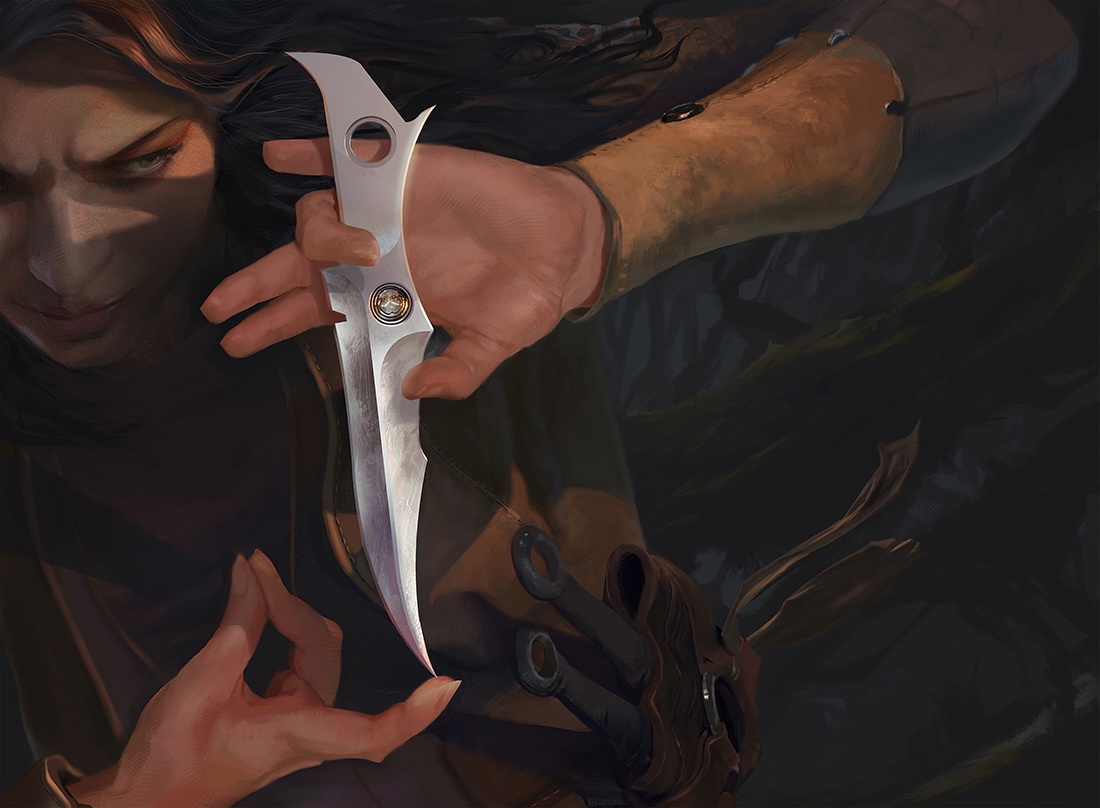




Roguish Archetypes
Choose a Roguish Archetype from the following options that best represents the signature set of abilities for your Rogue:
| Arcane Trickster | Investigator | Psiknife |
| Assassin | Mastermind | Scout |
| Burglar | Phantom | Swashbuckler |
Arcane Trickster
Arcane Tricksters supplement their skills with magical spells that they have pilfered, borrowed, and figured out by intuition. Unlike Wizards who study in guilds or schools, these Rogues uses their magic to for trickery, subterfuge, and self benefit.
Spellcasting
3rd-level Arcane Trickster Archetype feature
You have pilfered fragments of arcane knowledge and taught yourself how to cast spells. You gain the following benefits:
Cantrips. You learn three Cantrips: mage hand and two other Cantrips of your choice from the Arcane Trickster spell list on the next page. You learn another Cantrip at 10th level.
Spells Known of 1st-Level and Higher. You also learn three 1st-level Arcane Trickster spells of your choice, and the Spells Known column of your Arcane Trickster Spellcasting table shows when you learn additional spells. All spells that you learn must be of a level for which you have spell slots.
Also, when you gain a level, you can replace one spell you know with another Arcane Trickster spell of your choice.
Spell Slots. The Arcane Trickster Spellcasting table also shows how many spell slots you have to cast your spells. To cast a spell, you must expend a spell slot of the spell's level or higher. You regain all spell slots when you finish a long rest.
Spellcasting Ability. Intelligence is the spellcasting ability for your Arcane Trickster spells. You use Intelligence when an Arcane Trickster spell refers to your spellcasting ability, when making a spell attack roll, or when setting a Spell save DC:
Spell save DC = 8 + your proficiency bonus
+ your Intelligence modifier
Spell attack modifier = your proficiency bonus
+ your Intelligence modifier
Mage Hand Adept
3rd-level Arcane Trickster Archetype feature
You make the most of your minor magicks. You can choose for your mage hand to be invisible, you can control the hand with your bonus action, and if you are proficient, it can make Sleight of Hand and Thieves' Tools checks.
Arcane Misdirection
7th-level Arcane Trickster Archetype feature
As a bonus action, you can move your mage hand and use it to distract a creature within 5 feet, granting you advantage your next attack roll against it before the end of your turn.
Magical Polymath
7th-level Arcane Trickster Archetype feature
You can use any spell scroll without restriction as if the spell was on the Arcane Trickster spell list. Also, when you could learn a new Arcane Trickster spell, you can instead choose to learn a spell from a spell scroll or Spellbook.
When you do so, it becomes an Arcane Trickster spell, but the scroll or Spellbook page you copied it from is destroyed.
Trickster's Ambush
13th-level Arcane Trickster Archetype feature
You use subterfuge to enhance your magic. When you use Arcane Misdirection, the target has disadvantage on the first saving throw you force it to make before the end of your turn.
In addition, when you use Uncanny Dodge, you can choose to teleport to an unoccupied space you can see within 15 feet.
Spell Thief
17th-level Arcane Trickster Archetype feature
Your aptitude for arcane theft is unparalleled. When you are targeted by or within the area of effect of a spell, you can use your reaction to attempt to steal the spell's magic. Both you and the caster make a spell attack roll.
If you lose or tie, the spell takes effect as normal. If you win, the spell fails, and once before the start of your next long rest you can cast that spell once, at its lowest level, as if it were an Arcane Trickster spell without expending a spell slot.
If the spell was of a level for which you have spell slots, you can also replace one of your Spells Known with that spell.
You can use this feature once per long rest at no cost, after which, you must spend a 3rd-level spell slot to use it again.
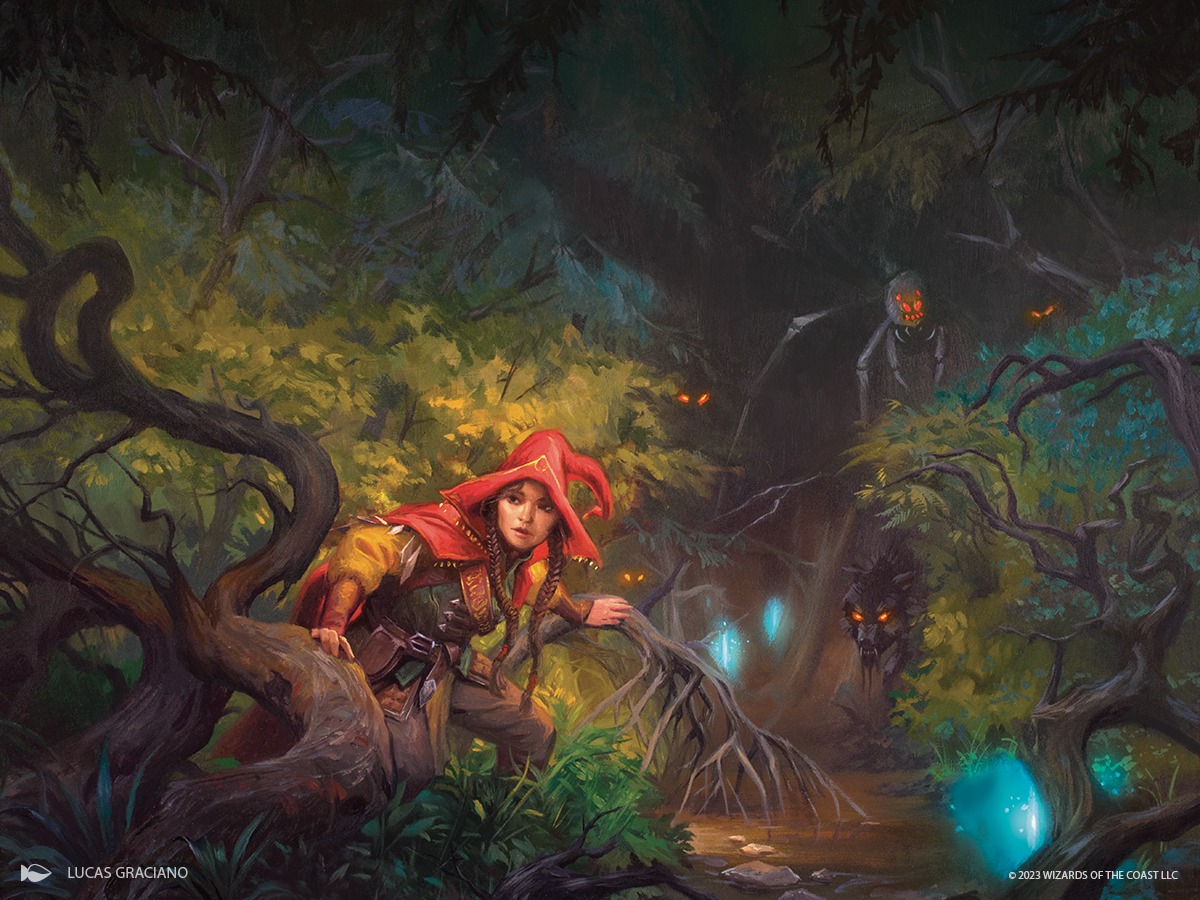


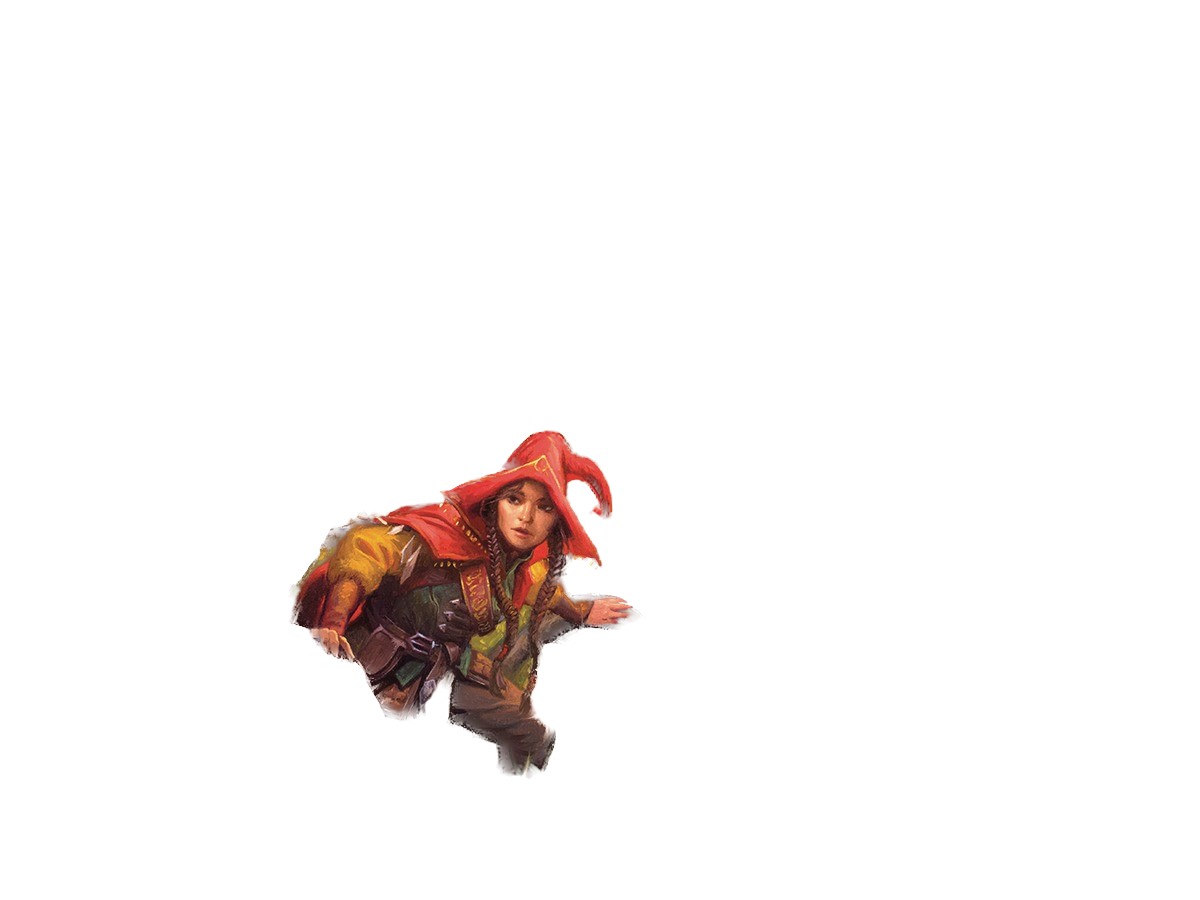
Arcane Trickster Spell List
Here are the spells available to Arcane Tricksters,
found in the Player's Handbook, Xanathar's Guide to Everything *, and in Tasha's Cauldron of Everything **.
Spells marked ll are found in the laserllama Spell Compendium, which includes new and alternate spells.
Cantrips (0-Level)
acid splash ll
booming blade ll
dancing lights
fire bolt
friends ll
frostbite
green-flame blade ll
light
mage hand
magic stone *
message
minor illusion
poison spray ll
prestidigitation
ray of frost
shocking grasp
1st-Level
alarm
bane
catapult *
cause fear *
charm person
color spray
comprehend languages
detect magic
detect poison & disease
disguise self
dissonant whispers
faerie fire
feather fall
conjure familiar ll
floating disk
fog cloud
grease
hideous laughter
identify
illusory script
jump ll
longstrider
silent image
sleep
snare *
unseen servant
2nd-Level
blindness/deafness
blur
calm emotions
crown of madness
darkness
darkvision
enlarge/reduce
hold person
invisibility
levitate
lock/unlock ll
magic aura
magic mouth
mind whip **
mirror image
misty step
phantasmal force
rope trick
see invisibility
shadow blade *
silence
spider climb
suggestion
3rd-Level
blink
counterspell ll
dispel magic
enemies abound *
fear
hypnotic pattern ll
major image
nondetection
sending
tiny servant *
4th-Level
charm monster *
confusion
dimension door
freedom of movement
greater invisibility
hallucinatory terrain
phantasmal killer
Additional Arcane Trickster Spells?
If your table uses spells from other sourcebooks, like Fizban's Treasury of Dragons, you can add any additional spells available to both the Wizard and Sorcerer to the Arcane Trickster spell list above.
Arcane
Trickster Spellcasting
| Rogue Level |
Spells Known |
1st Level |
2nd Level |
3rd Level |
4th Level |
|---|---|---|---|---|---|
| 3rd | 3 | 2 | — | — | — |
| 4th | 4 | 3 | — | — | — |
| 5th | 5 | 3 | ─ | — | — |
| 6th | 5 | 3 | ─ | — | — |
| 7th | 6 | 4 | 2 | — | — |
| 8th | 6 | 4 | 2 | — | — |
| 9th | 7 | 4 | 2 | — | — |
| 10th | 7 | 4 | 3 | — | — |
| 11th | 8 | 4 | 3 | — | — |
| 12th | 8 | 4 | 3 | — | — |
| 13th | 9 | 4 | 3 | 2 | — |
| 14th | 9 | 4 | 3 | 2 | — |
| 15th | 10 | 4 | 3 | 2 | — |
| 16th | 10 | 4 | 3 | 3 | — |
| 17th | 11 | 4 | 3 | 3 | — |
| 18th | 11 | 4 | 3 | 3 | — |
| 19th | 12 | 4 | 3 | 3 | 1 |
| 20th | 12 | 4 | 3 | 3 | 1 |






Assassin
You have chosen to specialize in the grim art of death. As an Assassin, you make use of stealth, poisons, and disguises to attack your foe when they least expect it. Those who walk this path find work as killers, spies, and bounty hunters.
Assassinate
3rd-level Assassin Archetype feature
As an assassin you are at your deadliest when your foes
have no time to react. You gain the following benefits:
- After initiative order is determined, you can expend
an Exploit Die and add it to your initiative roll. - You have advantage on weapon attack rolls against
any creature that has not yet acted in combat. - Whenever you hit a creature that is Incapacitated or Surprised with a weapon attack that adds your Sneak Attack bonus, it becomes an automatic critical hit.
Assassin Exploits
3rd-level Assassin Archetype feature
You learn certain Exploits at the Rogue levels noted in the table below. They don't count against your total number of Exploits Known and can't be switched on gaining a level:
| Rogue Level | Exploit |
|---|---|
| 3rd | aerial maneuver, precision strike |
| 5th | craft simple poison, crippling strike |
| 9th | craft expert poison |
Infiltrator
3rd-level Assassin Archetype feature
You are adept at blending in where you don't belong. You
gain proficiency with both disguise and poisoner's kits.
Over the course of 10 minutes, which can be during a
short or long rest, you can use your disguise kit to craft a disguise that resembles a dead or Unconscious humanoid,
so long as you have its body. This disguise is detected by a successful Search action against your Exploit save DC.
Finally, you can unerringly mimic any Humanoid's speech, so long as you have spent at least 10 minutes listening to it, and you can speak the language you wish to mimic.
Deadly Blades
7th-level Assassin Archetype feature
You are exceptionally skilled at taking lives when conditions are right. When you score a critical hit and roll a 1 on any of your damage dice for that attack, you can re-roll those dice.
Also, whenever you add your Sneak Attack bonus to an attack, you can use Cunning Strike to reduce that bonus by 1d6 to force the target to make a Constitution saving throw. On a failure, it is Poisoned until the start of your next turn.
Flawless Infiltrator
13th-level Assassin Archetype feature
The skill with which you adopt other creatures' identities is nearly supernatural. You learn to speak, read, and write three additional languages of your choice, and whenever you make an ability check to maintain a disguise's credibility, you gain a bonus to your roll equal to your Exploit Die
In addition, you also add your Rogue level to the DC of any
check a creature makes to see through your disguise.
Master Poisoner
13th-level Assassin Archetype feature
Your skill with poisons exceeds that of all others who study the toxic arts. You can use any Devious Exploit you know that allows you to craft a poison (such as craft simple poison), and apply that poison to a weapon, with one bonus action.
You also learn the craft advanced poison Exploit, but it does not count against your number of Exploits Known.
Death Strike
17th-level Assassin Archetype feature
You have become a master of instant death. When you add your Sneak Attack damage bonus to a weapon attack, you can choose for that attack to be an automatic critical hit.
Once you use this feature you must finish a short or long rest before you can use it again.
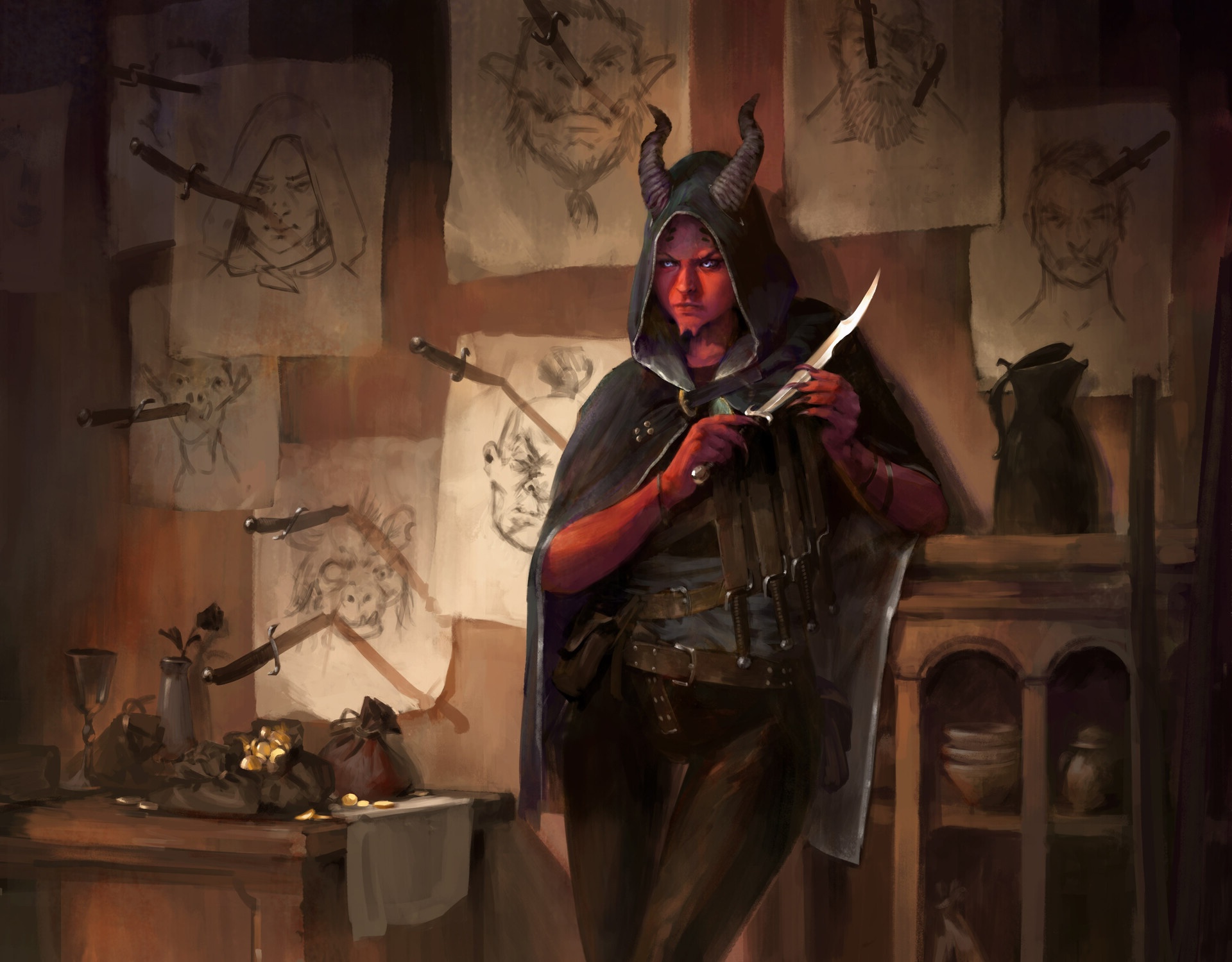


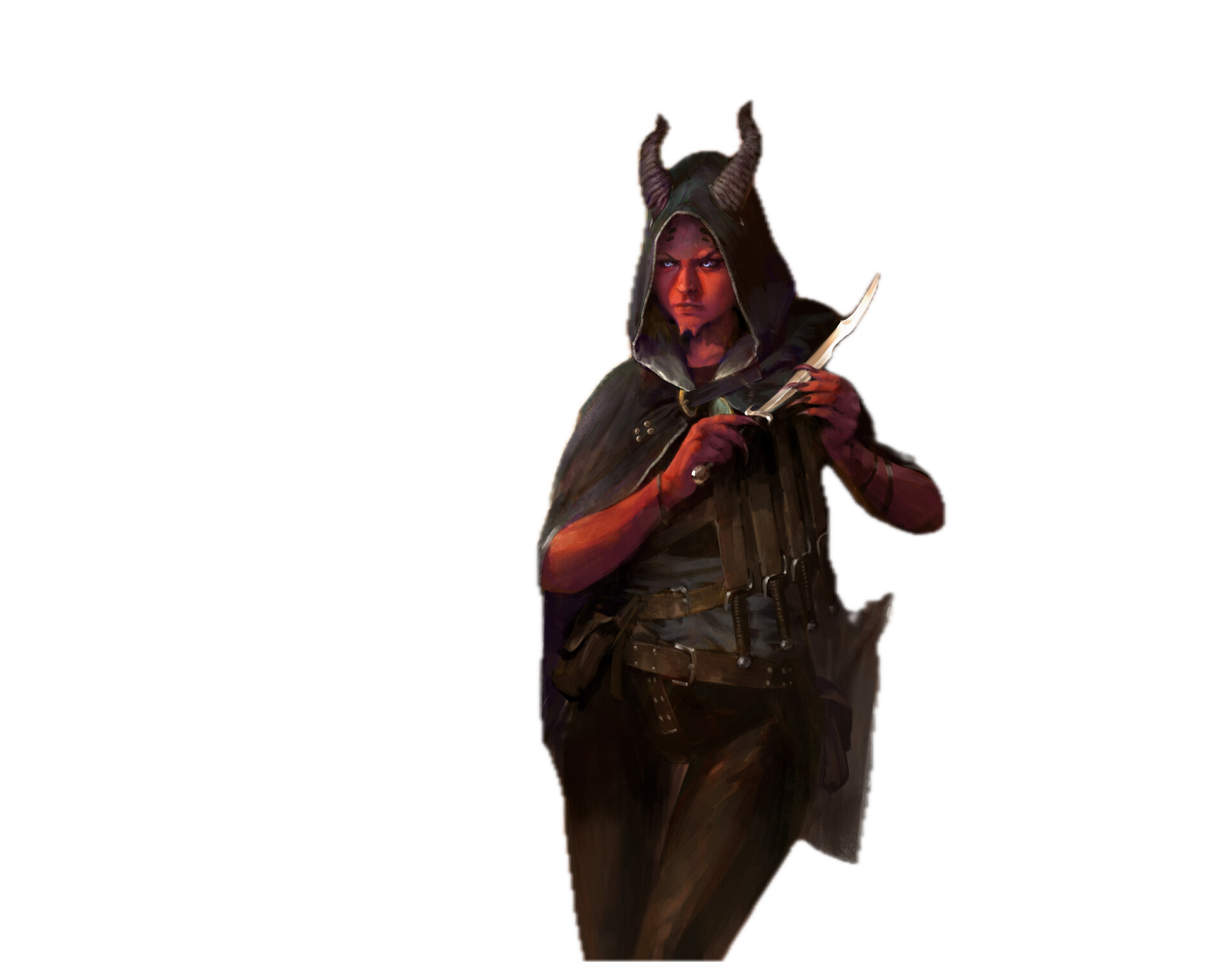


Burglar
You have honed your skills in the larcenous arts. While not all Burglars are criminals, most find employ as thieves, bandits, cutpurses, and treasure hunters. Your set of skills grants you increased agility and stealth, but also abilities that are helpful for delving into dangerous ruins and using ancient artifacts.
Burglar Exploits
3rd-level Burglar Archetype feature
You learn certain Exploits at the Rogue levels noted in the table below. These don't count against your total number of Exploits Known and can't be switched upon gaining a level:
| Rogue Level | Exploit |
|---|---|
| 3rd | aerial maneuver, modify device |
| 5th | dirty hit, survey dungeon |
| 9th | forgotten knowledge |
Nimble
3rd-level Burglar Archetype feature
You gain a climbing speed equal to your walking speed, and you can also use your Dexterity, in place of Strength, when
you calculate your long or high jump distance.
Quick Fingers
3rd-level Burglar Archetype feature
You are a master of pilfering pockets when
your mark has its guard down. When you
add your Sneak Attack bonus to a melee
attack, you can reduce the bonus damage
by 1d6 to attempt to steal an object from
your target. Make a Dexterity (Sleight of
Hand) check contested by your target's
Wisdom (Perception) check.
On a success, you can remove one
object of your choice from the target's
pockets, bag, pouch, belt, or another
that object it is not holding.
Finally, you can use your Cunning
Action to use a set of tools or to make
a Dexterity (Sleight of Hand) check as
a bonus action on your turn.
Supreme Sneak
7th-level Burglar Archetype feature
You have advantage on any Dexterity
(Stealth) check you make while moving
at half your speed, and you can attempt
to Hide when you are lightly obscured.
Also, you can use Cunning Strike to
reduce your Sneak Attack bonus by 1d6
to take the Hide action before the end of
that turn, no action required.
Treasure Lore
7th-level Burglar Archetype feature
You have a knack for finding useful
information and lost lore. Whenever
you make an ability check to research,
investigate the workings of, or assess the
value of a magic item, treasure, or trap, you
gain a bonus equal to your Exploit Die.
You can also use the Use an Object action to activate a magic item, cast a spell from a spell scroll, drink a potion, or utilize a magic object that would take an action.
Use Magic Device
13th-level Burglar Archetype feature
You have learned enough about the inner workings of magic objects that you can improvise the use of any item even when it is not intended for your use. You ignore all alignment, class, race, and level requirements for the use of magic items, spell scrolls, and potions. If one of these magical items requires a spellcasting ability, you use your Intelligence.
For example, you could cast a spell from a Wizard's spell scroll or attune to a Holy Avenger or Dwarven Thrower.
Quick Reflexes
17th-level Burglar Archetype feature
The time you've spent pilfering pockets and treasures has honed your reflexes to near-supernatural heights. You gain one additional bonus action that you can take on each of your turns, though, it can only be used to take one of the actions from your Cunning Action.
If you do not use this extra bonus action, you instead gain one additional reaction you can use before the start of your next turn. A single effect can only trigger one reaction.
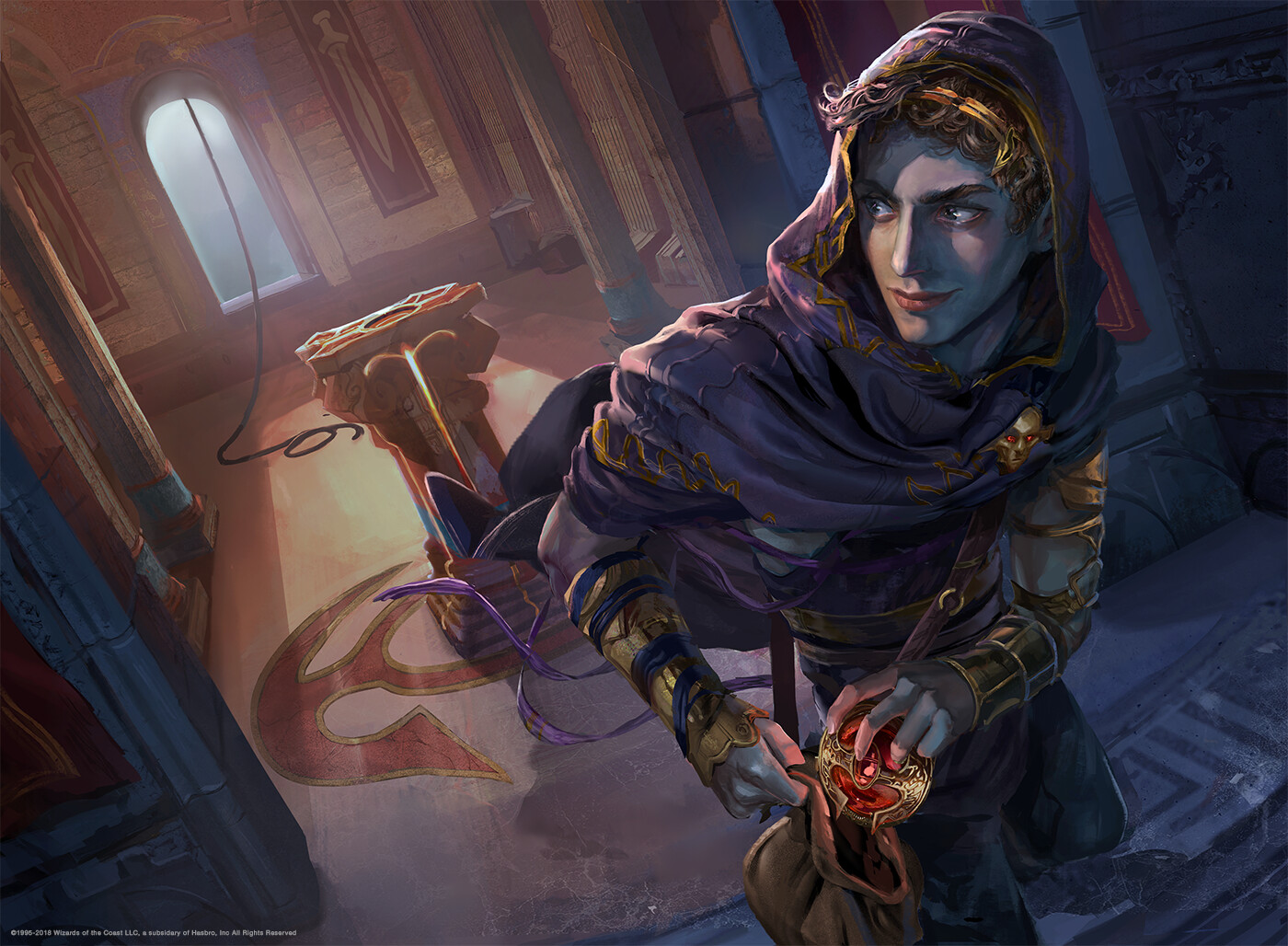

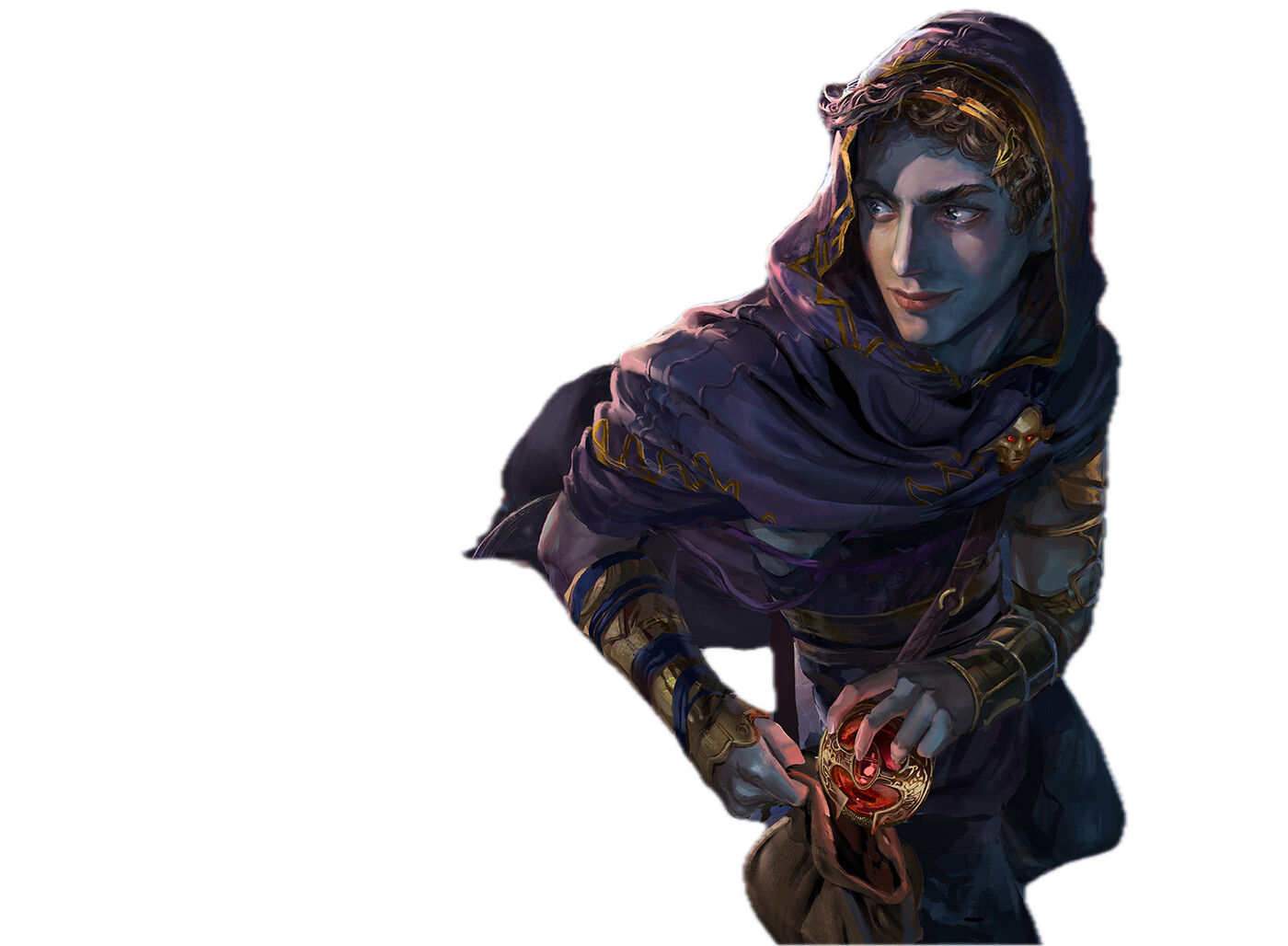


Investigator
If there are secrets to be uncovered or a mystery to be solved, there are none more adept than an Investigator. Experts who have honed the skills of observation and deduction to heights which rival even potent divination magic. For an Investigator, the only thing that stands between them and the truth is time.
Eye for Detail
3rd-level Investigator Archetype feature
Your perceptive abilities are a finely honed tool. You can make Intelligence (Insight) and Intelligence (Perception) checks.
You can also use your Cunning Action to take the Search action as a bonus action on your turn. Whenever you take the Search action, you gain additional information as if you spent 10 minutes investigating the focus of your Search.
Investigator Exploits
3rd-level Investigator Archetype feature
You learn certain Exploits at the Rogue levels noted in the table below. These don't count against your total number of Exploits Known and can't be switched upon gaining a level:
| Rogue Level | Exploit |
|---|---|
| 3rd | disarm, precision strike |
| 5th | exposing strike, survey dungeon |
| 9th | survey settlement |
Predictive Fighting
3rd-level Investigator Archetype feature
You observe your enemy's combat tactics to better predict openings in its defenses. You can take the Search action,
focusing on a creature that you can see within 60 feet
(DC = 8 + its Challenge Rating). On a success, for the
next minute, you can add your Intelligence modifier
(a minimum of +1) to weapon attack rolls against
that target and you do not need
advantage on your attack
roll to add your Sneak
Attack bonus damage.
If you attempt to use
this feature on another
target, this bonus ends
for any previous targets.
Insightful Strike
7th-level Investigator Archetype feature
Your predictive capabilities in combat have increased.
Each time you hit a creature with an attack that adds your Sneak Attack bonus damage, you can use Cunning Strike feature to reduce the bonus damage by 1d6 and learn one
of the following characteristics of your choice:
| Armor Class | Highest Ability Score |
| All Special Senses | Lowest Ability Score |
| Resistances, Immunities, & Vulnerabilities |
One Trait or Action from its stat block |
In addition, if you use Predictive Fighting to take
the Search action, you have advantage on your ability
check if you have hit the target with an attack since
the end of your previous long rest.
Adept Investigator
13th-level Investigator Archetype feature
Your investigative process leaves no stone unturned. Using the survey dungeon or survey settlement Exploit takes you half as much time and you gain twice as much information.
Also, whenever you finish a long rest in a settlement, or a short rest in a dungeon, you gain the benefits of the survey settlement or survey dungeon Exploit, respectively. Though, this feature does not interrupt your short or long rest.
Unerring Sight
13th-level Investigator Archetype feature
Your perceptive abilities rival those of supernatural entities. You gain Truesight to a 10-foot radius, and when you observe anything within that radius you have advantage on all Insight, Investigation, and Perception checks.
As you gain levels in this class, the radius of this Truesight grows to match the radius of your Blindsense feature.
Exploit Weakness
17th-level Investigator Archetype feature
You perfectly exploit your foe's vulnerabilities. When you use Predictive Fighting, you automatically succeed on the Search check, and you roll d8s, in place of d6s, for your Sneak Attack damage bonus against that creature for
the duration.
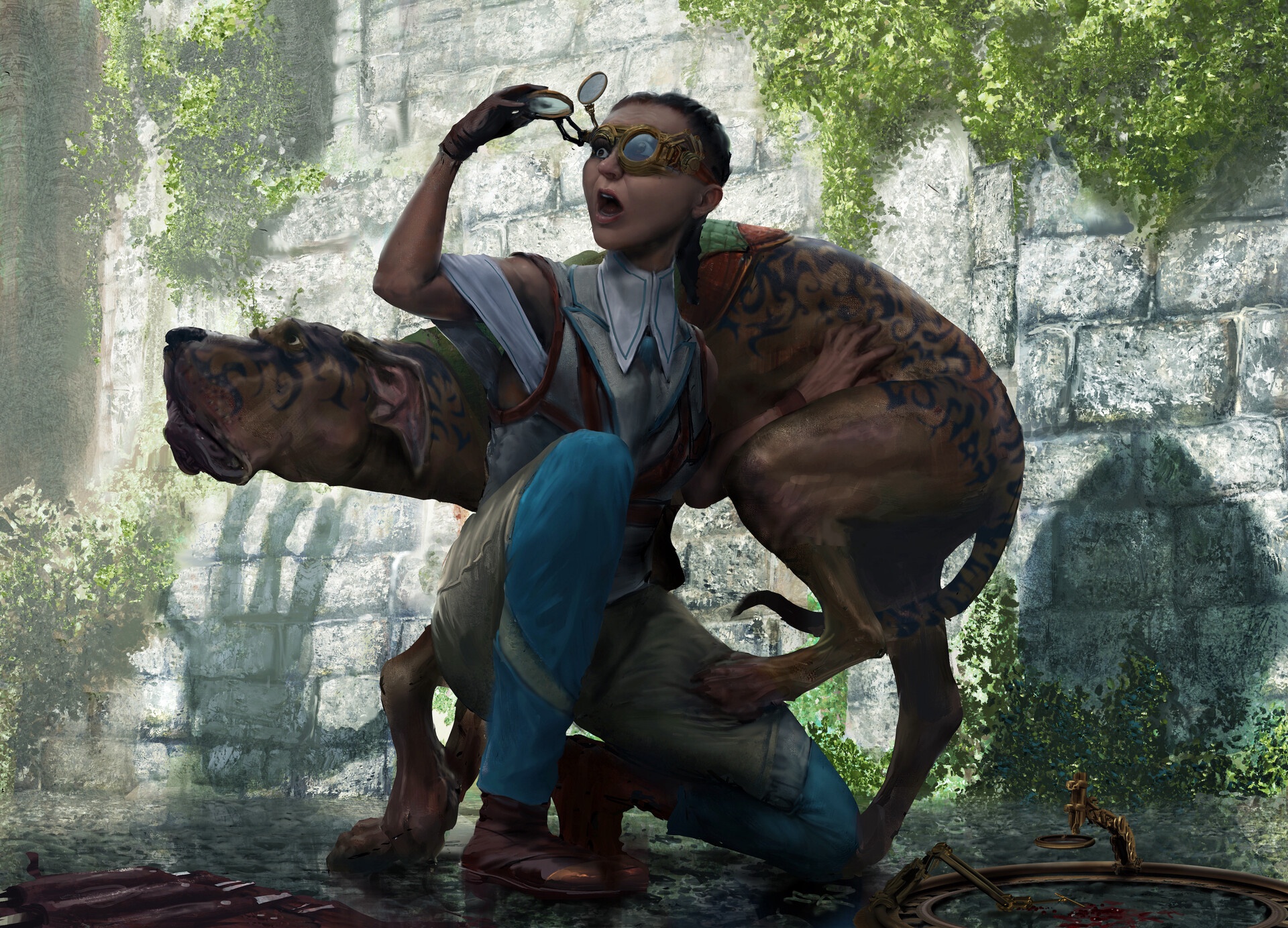




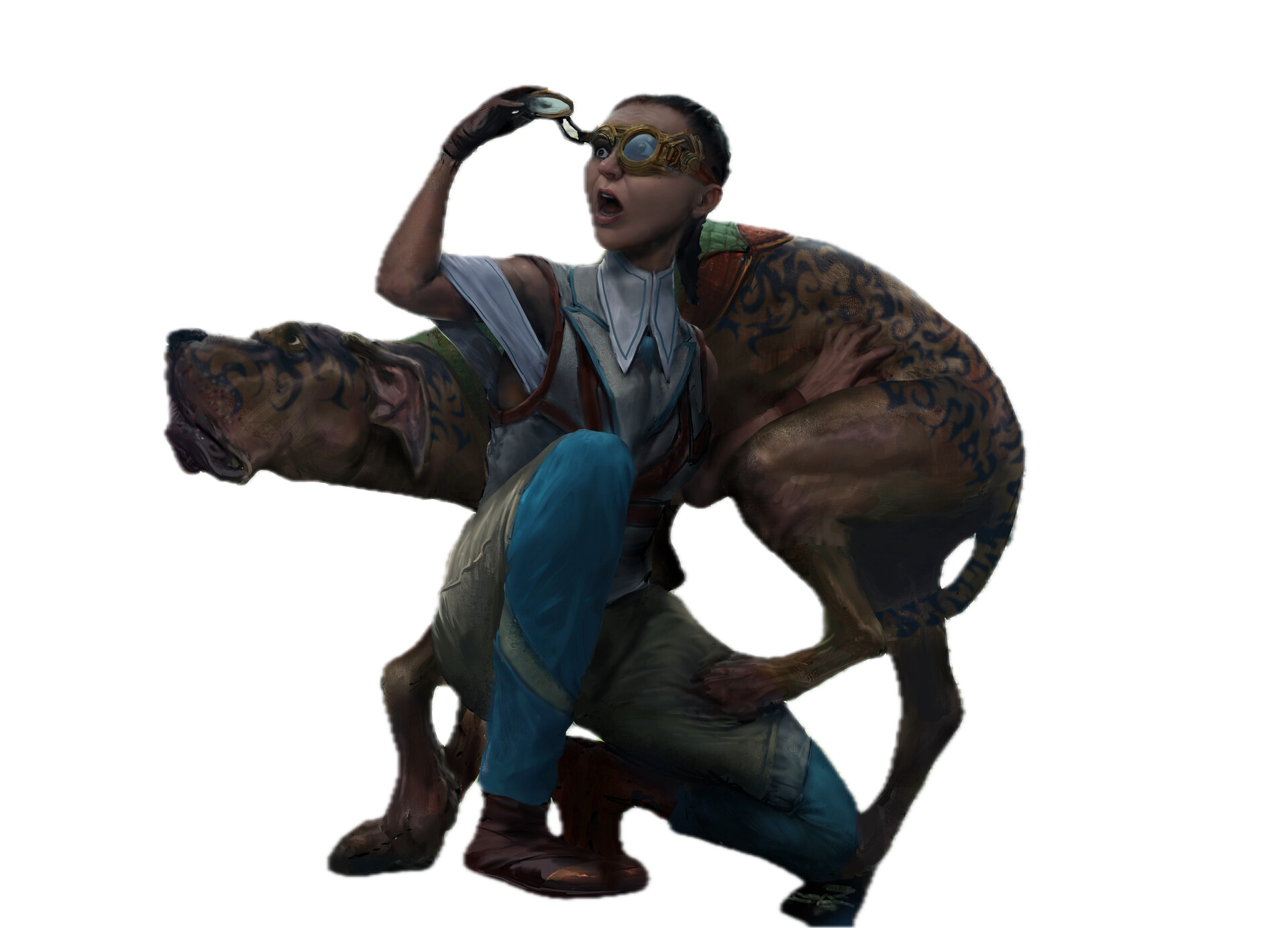


Mastermind
You have put your considerable skill to work in mastering the art of manipulation. With a whisper and suggestion, you have a way of getting others to do what you want, even if it may not be in their best interest. Whether directing political gambits or allies in combat, you move others like pieces in a game.
Mastermind Exploits
3rd-level Mastermind Archetype feature
You learn certain Exploits at the Rogue levels noted in the table below. These don't count against your total number of Exploits Known and can't be switched upon gaining a level:
| Rogue Level | Exploit |
|---|---|
| 3rd | eloquent speech, roguish charm |
| 5th | exposing strike, soothing speech |
| 9th | recruit informant |
Master of Machinations
3rd-level Mastermind Archetype feature
You have gathered a set of skills to aid in your machinations. You learn to speak, read, and write two additional languages, and you gain proficiency with disguise and forgery kits.
Moreover, if you speak with a creature in its native tongue for at least 1 minute, you can use the roguish charm Exploit without expending an Exploit Die. When you do so, you can expend one Exploit Die to cause the effect to last until the end of the target's next long rest. However, you can't regain this Exploit Die while the effect of this Exploit lasts.
Tactical Acumen
3rd-level Mastermind Archetype feature
You use your insight into others to aid allies in battle. You can use your Cunning Action to take the Help action as a bonus action on each of your turns.
In addition, whenever you use the Help action to aid an ally in attacking a creature, the target of that attack can be within
30 feet of you, rather than 5 feet, so long as the attacker
can see or hear you.
Manipulative Intuition
7th-level Mastermind Archetype feature
You are adept at reading the motivations of others. When you spend at least 1 minute talking with or observing a creature outside of combat, you learn one of the following facts:
- One of its ideals, bonds, flaws, motivations, or alignment.
- It's true attitude toward you, or another creature that you observe it interacting with for the same duration.
Once you use this feature on a creature you cannot use it on that creature again until you finish a long rest. Creatures with Legendary Resistance are immune to this ability.
Potent Insight
7th-level Mastermind Archetype feature
When you use the Help action to aid an ally in attacking a creature and their attack hits, you can use your reaction to add your Sneak Attack bonus to its damage roll. However, if you do so, you cannot use Sneak Attack on your next turn.
Devious Tactics
13th-level Mastermind Archetype feature
You have no qualms about leaving others in danger. When a creature you can see targets you with an attack, you can use your reaction to force a creature within 5 feet of you to make a Dexterity saving throw, that it can choose to fail. On a failed save, you switch places with it, and it becomes the target of the attack in your place.
Inscrutable Mind
17th-level Mastermind Archetype feature
Your conspiratorial mind is nearly impossible to manipulate. Whenever you make an Intelligence, Wisdom, or Charisma saving throw, you add your Intelligence modifier to your roll.
Lastly, your thoughts and dreams cannot be read by magic unless you allow it. If a creature attempts to read your mind,
you can deceive it with false thoughts
by making a Deception check.





Phantom
You have a strange relationship with the border between life and death, and serve as a living gateway between two worlds. You can channel this connection to gain knowledge from the dead. By immersing yourself in the ethereal power of death you gain strange abilities normally associated with spirits.
Phantom Exploits
3rd-level Phantom Archetype feature
You learn certain Exploits at the Rogue levels noted in the table below. These don't count against your total number of Exploits Known and can't be switched upon gaining a level:
| Rogue Level | Exploit |
|---|---|
| 3rd | arresting strike, feint |
| 5th | exposing strike, grasp of night |
| 9th | forgotten knowledge |
Knowledge of the Grave
3rd-level Phantom Archetype feature
You can call upon spirits who have passed beyond this life to share their knowledge with you. You gain proficiency in one skill or tool, or learn to speak, read, and write one language
of your choice. During a short
or long rest you can replace the
proficiency or language with
another of your choice.
Grave Bolt
3rd-level Phantom Archetype feature
You channel the pain and death of others into sinister magic. When you hit a creature with an attack that adds your Sneak Attack bonus damage, you can force a different creature that you can see within 30 feet to make a Wisdom saving throw.
On a failed save, roll half the number of dice you would roll for your Sneak Attack damage bonus (rounded up), and that second creature takes necrotic damage equal to your roll.
Soul Trinkets
7th-level Phantom Archetype feature
You can capture the power of recently departed souls to fuel your strange and sinister magicks. When a creature with an Intelligence of 5 or higher dies within 30 feet of you, you can use your reaction to form a Soul Trinket in a free hand. Soul Trinkets use the following rules:
Appearance. Soul Trinkets are Tiny objects that reflect the true nature and values of the soul they were siphoned from.
Total Trinkets. You can have a total number of Trinkets at one time equal to half your Rogue level (rounded down), and you cannot form a new Trinket while at your maximum.
Undead Resilience. While you have a Trinket on you, you have advantage on Constitution and Death saving throws.
Dark Offering
7th-level Phantom Archetype feature
You can perform dark and evil magicks fueled by the power of
your Soul Trinkets. You gain the following abilities:
Extract Knowledge. As an action, you destroy a
Soul Trinket and ask the soul within one question,
as if you has cast the speak with dead spell
Grave Smite. When you add your Sneak Attack
bonus damage to an attack, you can destroy a Soul
Trinket to change its damage type to necrotic.
Otherworldly Fright. Whenever a creature fails
its saving throw against your Grave Bolt you can
destroy a Soul Trinket and cause the creature
to be Frightened of you until the beginning of
your next turn.
Spectral Step
13th-level Phantom Archetype feature
You can partially slip into the realm of the dead.
Whenever you take the Dash action you can become
incorporeal until the end of your current turn. While in
this state you move through creatures and objects as if they
were difficult terrain, and you have a 15-foot flying speed.
If you end your turn inside a solid object or creature you are instantly shunted to the nearest unoccupied space taking 1d10 force damage for every 5 feet you were forced to travel.
This force damage cannot be reduced in any way.
Death Knell
17th-level Phantom Archetype feature
You have become so familiar with death that you can channel its inevitable power with ease. When you use Grave Bolt, you
can destroy a Soul Trinket to force creatures of your choice
within 30 feet of the target to make a Wisdom saving throw.
On a failed save, creatures suffer the effects of your Grave
Bolt and are Frightened of you until the start of your next
turn. On a success, they only take half as much damage.








Psiknife
Rare amongst those who practice the roguish arts is one who has true psionic potential. When trained to unlock the psionic power within themselves, these Rogues can learn to become Psiknives. Focusing their wondrous minds they can manifest blades of pure mental power, communicate telepathically, and augment their considerable skills with psionic enhancement.
Psionic Awakening
3rd-level Psiknife Archetype feature
You have unlocked the dormant potential of your mind. This mental power is represented by a pool of Psi Points equal to your Rogue level. You regain a number of Psi Points equal to your Intelligence modifier (minimum of 1) when you finish a short rest, and all of your Psi Points when you finish a long rest. Your Psi Points also fuel the following abilities:
Mystical Skill. Whenever you fail an ability check, you can expend 1 Psi Point to gain a bonus to that roll equal to your Exploit Die, possibly turning a failure into a success. Should this change the outcome, it is a visibly psionic effect.
Telekinetic Leap. As a bonus action, you can expend 1 Psi Point and 10 feet of movement to jump up to 30 feet in a line, even if this distance would exceed your remaining speed.
Telepathic Link. As an action, you can expend any number of Psi Points, choosing one creature that you can see per Psi Point spent. You and all of those creatures become part of a telepathic network for a total number of hours equal to your Intelligence modifier (minimum of 1 hour). So long as you all remain on the same plane of existence you can communicate telepathically with each other.
Psi Blade
3rd-level Psiknife Archetype feature
You can conjure blade of pure mental power. As part of
an attack, or as a bonus action, you can conjure one
Psi Blade in an empty hand and make one attack
with it. Your Psi Blades use the statistics of the
dagger, but it deals psychic damage on hit, you
can use Intelligence for its attack and damage
rolls, and its thrown range is doubled.
The Psi Blade emits bright light in a 5-foot
radius, its attacks leave no visible marks on
your target, and you can dispel it at-will.
The damage die of your Psi Blade grows
to match the size of your
Exploit Die.
Empowered Blades
7th-level Psiknife Archetype feature
Your Psi Blades are infused with a portion of your willpower. You can expend Psi Points to use the following features:
Mind Rend. When you hit with a Psi Blade and add your Sneak Attack damage bonus, you can use Cunning Strike to reduce the damage by 2d6 and force the target to make an Intelligence saving throw.
On a failure, it can't take reactions until the beginning of your next turn, and on its next turn it can only do one of the following: move, use one action, or use one bonus action.
Sentient Strike. When you miss with a Psi Blade attack, you can expend 1 Psi Point to gain a bonus to the attack roll equal to your Exploit Die, possibly turning a miss into a hit.
Metaphysical Shift
7th-level Psiknife Archetype feature
You can shift your place in reality with the wondrous powers
of your mind. You can use your Cunning Action to expend Psi Points (up to your Intelligence modifier) and teleport up to 20 feet per Psi Point spent, appearing in an unoccupied space of your choice that you can see within that range.
Shimmer
13th-level Psiknife Archetype feature
You can erase your presence from the minds of others. As an action, you can spend 1 Psi Point to veil yourself with psionic energy as if you had cast the invisibility spell on yourself.
This effect does not require concentration, but it instantly ends if you make an attack, cast a spell, or touch a creature.
Mental Scourge
17th-level Psiknife Archetype feature
You can focus the power of your Psi Blade to strike directly at your foe's mind. When you use Mind Rend to force a creature to make an Intelligence saving throw, you can reduce your Sneak Attack bonus by an additional 2d6 (for a total of 4d6)
to empower the strike further. On a failure, the creature
is Stunned until the start of your next turn.
You also regain one expended Psi Point
Point at the start of each of your
turns in combat.




Scout
Unlike most Rogues, your skills have been honed in the wild. You are adept at remaining unseen, scouting ahead of allies, stalking your prey, or hunting bounties. While you are most skilled in the wilderness, you can still hold your own in the back alleys of cities and deadly dungeons like most Rogues.
Ambuscade
3rd-level Scout Archetype feature
You are always prepared to strike first, often getting the jump on your chosen foes. When you roll initiative, so long as you are not Surprised, you can use your reaction to take the Hide or Search action, or to make a single weapon attack.
If you are Surprised, you cannot take this special reaction, but you can act normally on your first turn of combat.
Scout Exploits
3rd-level Scout Archetype feature
You learn certain Exploits at the Rogue levels noted in the table below. These don't count against your total number of Exploits Known and can't be switched upon gaining a level:
| Rogue Level | Exploit |
|---|---|
| 3rd | arresting strike, feint |
| 5th | craft simple poison, trick shot |
| 9th | craft expert poison |
Skillful Hunter
3rd-level Scout Archetype feature
You are always on the move, never to be caught flat-footed on the hunt. When a creature you can see ends its turn within 5 feet of you, you can use your reaction to move up to half your speed without provoking opportunity attacks.
Also, whenever you make a Nature or Survival check, you gain a bonus to your roll equal to your Exploit Die.
Wilderness Adept
7th-level Scout Archetype feature
You have trained to overcome any obstacle you might face in the wilderness. Your speed increases by 10 feet, and you gain a climbing and swimming speed equal to your walking speed.
Moreover, when you take the Dash action, you can ignore any difficult terrain caused by natural phenomena.
Deadly Hunter
13th-level Scout Archetype feature
The wilds have taught you that the hunter who strikes first is often victorious. You add your Proficiency Bonus to initiative rolls, and when you use your Ambuscade reaction, you can move up to half your speed as part of that reaction.
Also, when you hit a creature with your Ambuscade attack, you can mark it for death. For the rest of the round, creatures of your choice have advantage on attacks against that target.
Twin Strike
17th-level Scout Archetype feature
You strike with quiet, deadly speed. When you take the Attack action, you can make one weapon attack as a bonus action on that same turn. You can also apply your Sneak Attack bonus to this attack, even if you have already used it on this turn, so long as these attacks do not target the same creature.
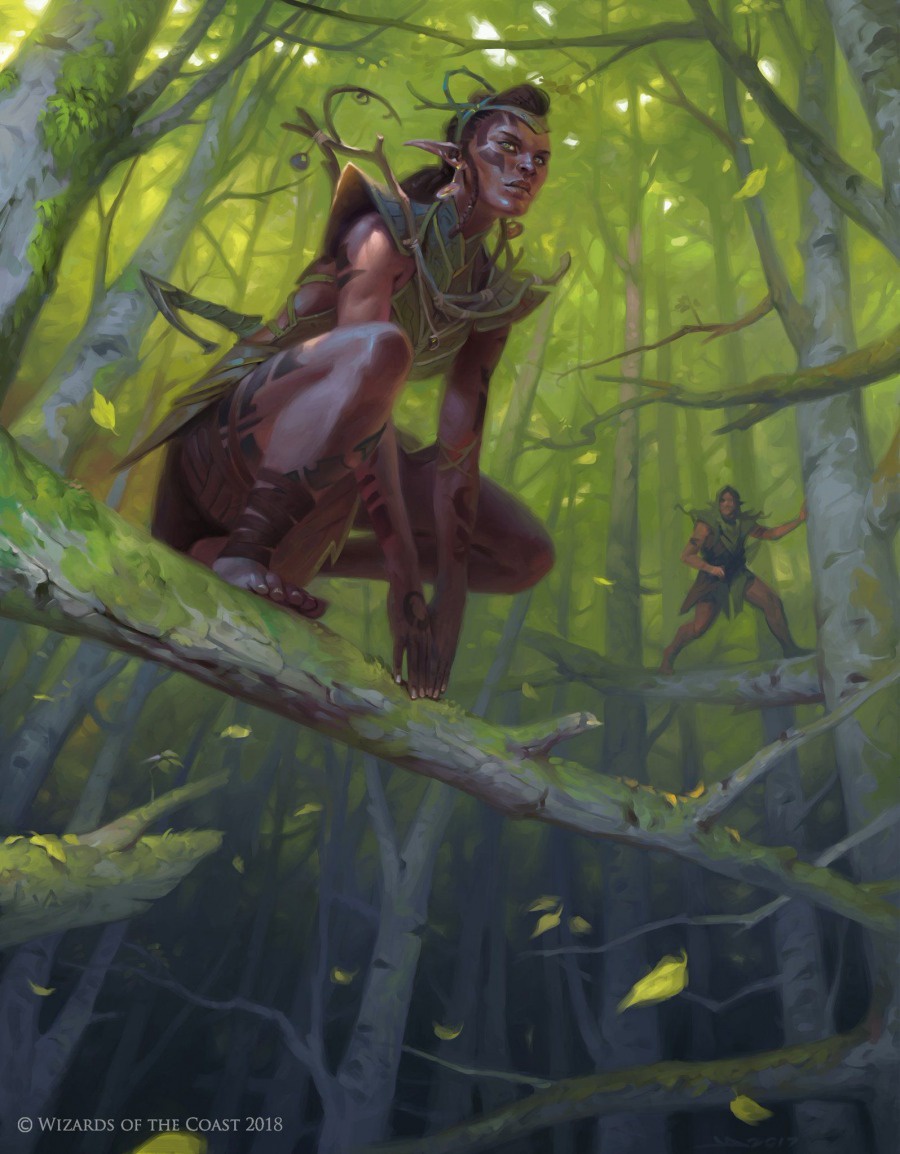



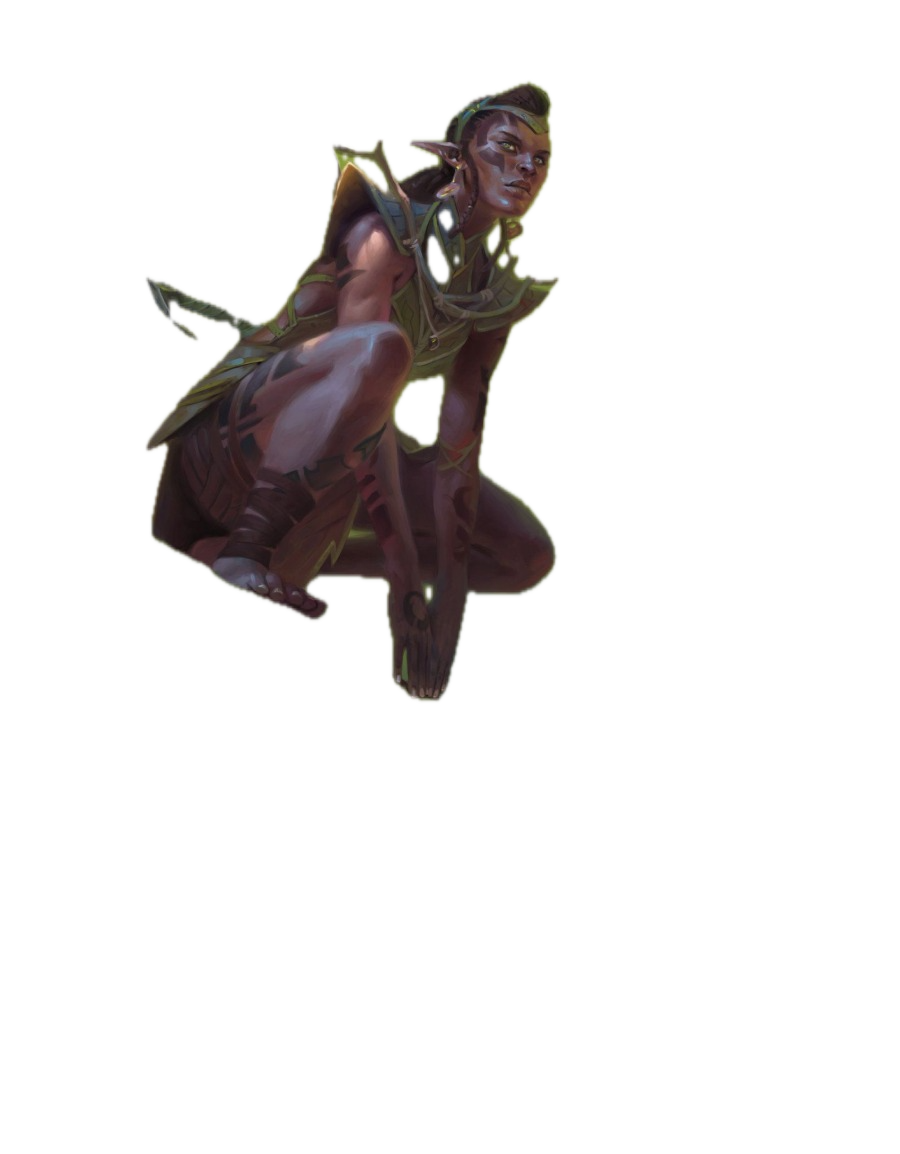


Swashbuckler
You have focused your training on the art of the blade. Where most Rogues strike from the shadows, you prefer to face your enemies head-on, relying on your deadly skills and signature charm. When put into action, your swordsmanship resembles an elegant performance that relies on speed and grace. There are few who can match the confidence of a Swashbuckler.
Fancy Footwork
3rd-level Swashbuckler Archetype feature
You dance about the field of battle, vexing your foes. If you make a melee attack against a creature, it cannot target you with opportunity attacks for the rest of your current turn.
Relentless Swagger
3rd-level Swashbuckler Archetype feature
You fight with unyielding confidence in yourself and your skill with the blade. So long as you are not Surprised you add your Charisma modifier (minimum of +1) to your initiative rolls.
You also do not need advantage on your attack roll to add your Sneak Attack bonus damage so long as you are within 5 feet of your target, no other creatures are within 5 feet of you, and you do not have disadvantage on your attack roll.
All the other rules for using Sneak Attack still apply to you.
Swashbuckler Exploits
3rd-level Swashbuckler Archetype feature
You learn certain Exploits at the Rogue levels noted in the table below. These don't count against your total number of Exploits Known and can't be switched upon gaining a level.
| Rogue Level | Exploit |
|---|---|
| 3rd | imposing presence, parry |
| 5th | glancing blow, soothing speech |
| 9th | recruit informant |
Panache
7th-level Swashbuckler Archetype feature
You have learned to knock your foes off-balance with nothing but wit and cunning words. When you hit a creature with an attack that adds your Sneak Attack bonus, you can use your Cunning Strike feature to reduce the bonus by 1d6 to cause one of the effects below until the start of your next turn:
Charm. One creature within 30 feet that can see you must succeed on a Wisdom saving throw or become Charmed by you until the start of your next turn.
Taunt. Until the start of your next turn, it has disadvantage on attacks against creatures other than you, it cannot make opportunity attacks, and if it casts a spell that deals damage or forces a saving throw you must be a target of it.
Elegant Warrior
13th-level Swashbuckler Archetype feature
You move about the battlefield with an unmistakable grace. When you take the Dash action on your turn, including when you use it as part of your Cunning Action, opportunity attacks targeting you are made with disadvantage.
In addition, whenever you make an Acrobatics, Athletics,
or Performance check you gain a bonus to your roll equal to your Exploit Die.
Master Duelist
17th-level Swashbuckler Archetype feature
Confidence in your skill with a blade lets you turn failure in combat into success. When you miss with an attack roll, you can choose to add your Charisma modifier (minimum of +1) to your attack roll, possibly turning a miss into a hit.
You can use this feature a number of times
equal to your Charisma modifier (min. of
once), and you regain all expended
uses when you finish a short
or long rest.





Alternate Rogue
Become the master of skill and subterfuge you were meant to be! Includes over Forty Devious Exploits and Nine Revised Roguish Archetypes.
Version 2.3.1 - Created by /u/laserllama
Last Updated: December 29th, 2025
Artist Credits:
Covers - Artur Treffner - Shortcut Seeker
Page 1 - Slawomir Maniak - Vault Robber
Page 3 - P.S. Canavan - Robber of the Rich
Page 4 - Billy Christian - Massacre Girl
Page 6 - Zolton Boros - Check for Traps
Page 7 - G. Rutkowski - Enhanced Surveillance
Page 8 - Khurrum - Spare Dagger
Page 9 - Lucas Graciano - Brave the Wilds
Page 10 - Justyna Dura - Aurora Shifter
Page 11 - Tomas Ducheck - Grim Hireling
Page 12 - Evyn Fong - Temple Thief
Page 13 - Campbell White - Dogged Detective
Page 14 - Magali Villeneuve - Emissary of Trest
Page 15 - Richard Luong - God of Fright
Page 16 - Miguel Mercado - Soulknife Spy
Page 17 - Victor Minguez - Llanowar Elves
Page 18 - Anna Podedworna - Dueling Rapier
Additional Laserllama Homebrew content
can be found for free on GM Binder.
Want more Archetypes, Feats, and Exploits? Check out the Alternate Rogue: Expanded!
Patrons unlock exclusive Roguish Archetypes:
Duelist - Edgelord - Falconer - Troubadour
